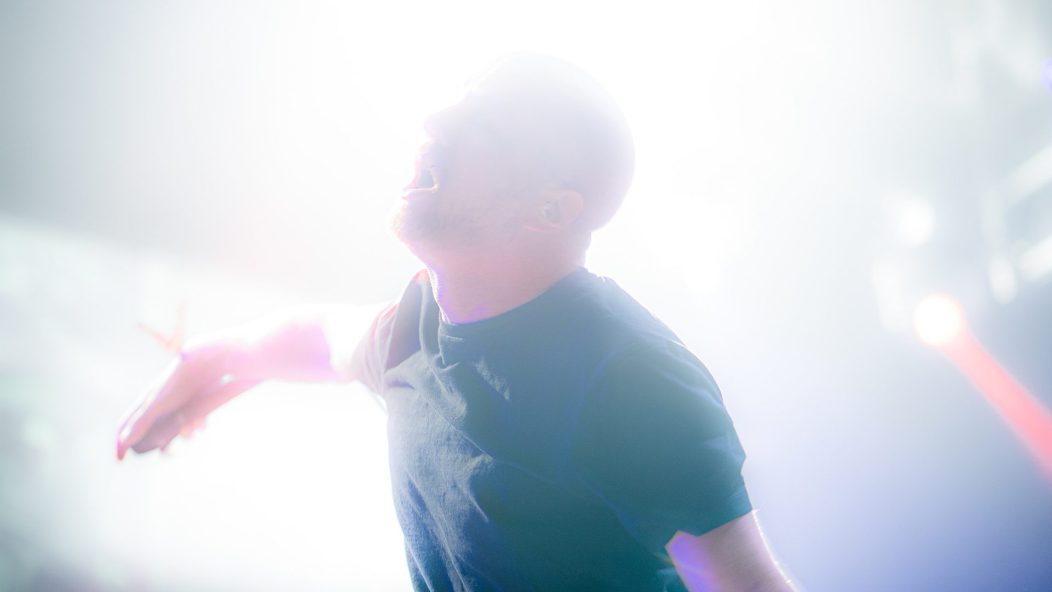
Having a Nice Life with Dan and Tim of Have a Nice Life (Interview)
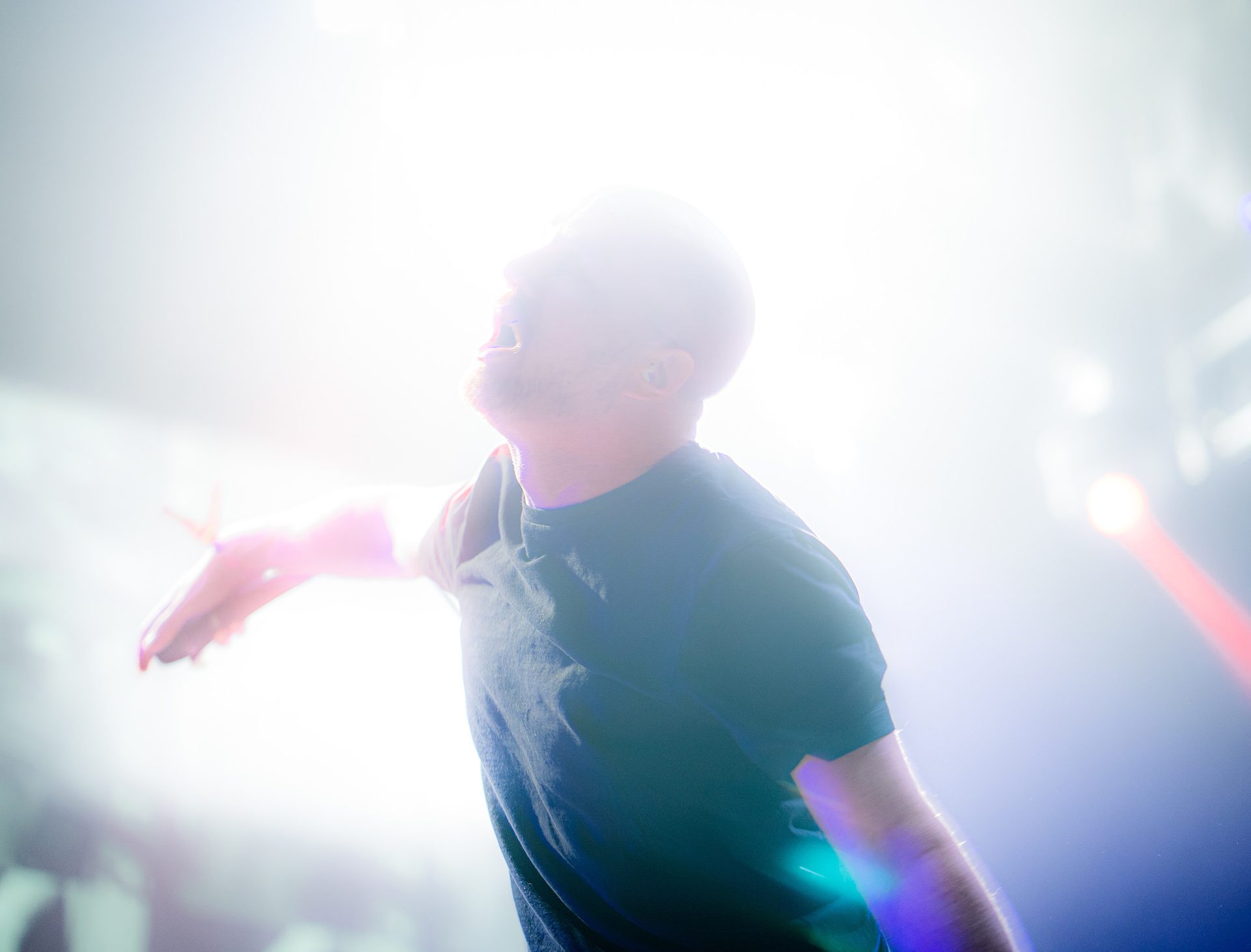
…
I have a special relationship with Have a Nice Life, which, I suspect, many of you do as well. Decidedly not metal — but with the passionate and furious energy characteristic of most metal — the band repeatedly strikes the moodiest chords and layers the most sensational atmosphere possible with the tools at their disposal. Toned down on distortion and favoring vibes from indie, shoegaze, doom, and “whatever,” Have a Nice Life comes off as an “easy burn” or even an “easy listen,” but that’s just the music’s surface speaking. Really digging into albums like Deathconsciousness (arguably their magnum opus), letting yourself soak into them versus vice-versa, reveals sensational sensitivity and heart-wrecking depth behind an otherwise gentle facade. The band has always written music not just about feeling, but for feeling.
Seeing Have a Nice Life perform live is the ultimate experience; it doesn’t decry or invalidate the recorded material but rather adds an entirely new dimension to the project’s forthright emotionality. I caught them at this year’s Psycho Las Vegas, a performance which included new material from Sea of Worry, their new full-length releasing tomorrow. I found it interesting how seamlessly the band’s material, spread out over many years of writing, congealed into one giant, massive festival of emotions, both good and bad. I immediately lost track of which song was which, actually, and instead just allowed the sound to soak into me like a wet body against a freshly washed towel. Afterward, I was drained, empty, and indeed sweaty, but so goddamn fulfilled, finally understanding that maybe it’s not the positivity or negativity of feelings which matter all the time, but rather their absolute values.
This band specializes in maximization — just like metal — but does so much more subtly, and to that end, smoothly. To catch up with how project founders Dan Barrett and Tim Macuga reached this point in their careers — and how Sea of Worry ultimately culminated — I exchanged some messages with them which you can dig into below.
…
…
“No fun. Not ever.” “Doom, gloom, drone, death.” How do these descriptions characterize Have a Nice Life, both considering the project’s history but also current state with the new album Sea of Worry? Also, with these words in mind, is there a specific philosophy of emotions behind the new album which may have developed from prior releases or as something bespoke?
Barrett: I think we always had a bit of a chip on our shoulder in terms of our band and label philosophy. It was always about doing The Work, and approaching The Work in a way that was both 100% serious and not serious at the same time.
I think a lot of that has continued on through Sea of Worry, it’s just the focus is different. I’m more worried about other people, about the world around me, than I am specifically about myself.
I have personally pumped a lot of cynicism out into the universe, but we always tried to cut that with a sense of humor, a nod to our own sense of self-importance. Today we’re surrounded by a culture that’s more nihilistic than I ever was, with no accompanying self awareness. It worries me.
Macuga: As unfashionable as it has become, I still default to a 20th Century existentialist stance. Thrown into this world toward death, feebly trying to interpret the absurd shadows of others, etc. For at least half a lifetime, this has continued to make the most sense. I’m starting to grapple with the narcissism of this, though.
Lately I have been looking at the OOO school — skeptically, guarded — and Timothy Morton’s whole “we are living after the end of the world, in the time of menacing, multidimensional, atemporal hyperobjects like The Internet and Nuclear Waste, what are we gonna do?” argument is resonating a little — helping me think outside of myself and my projects.
I saw your performance at Psycho Las Vegas this year, and it really moved me, making me feel something indescribable but sensationally raw and real and in-the-moment. Can you discuss Have a Nice Life’s approach to stage performance in terms of illustrating the meaning and emotion behind the music? Also, does the live performance feed back into your personal attachments to the music?
Barrett: Performing live definitely changed how I feel about certain songs.The performed version is very different, it becomes its own thing, a separate entity. When we play live, all I want is to expel what I feel. I’m not dark and brooding off stage at all, but whatever’s in there that I can’t express, I can get it out on stage. I can have a moment of deep connection and intimacy with a room full of people. It’s completely unique in my life, as an experience.
Macuga: Generally, we accept that live arrangements might have to depart from the recorded versions because it would be impossible to stack enough sounds to achieve desired effect. We try to increase the dynamic range between quiet/fragile and loud/intense both within songs, and gradually over set sequence. We unhinge as much as possible — “self-obliteration” as Dan has mentioned in the past — without forgetting to play our parts. Hopefully, it translates the mood in an engaging way while not pretending to intimate the listening experience with private recordings.
…
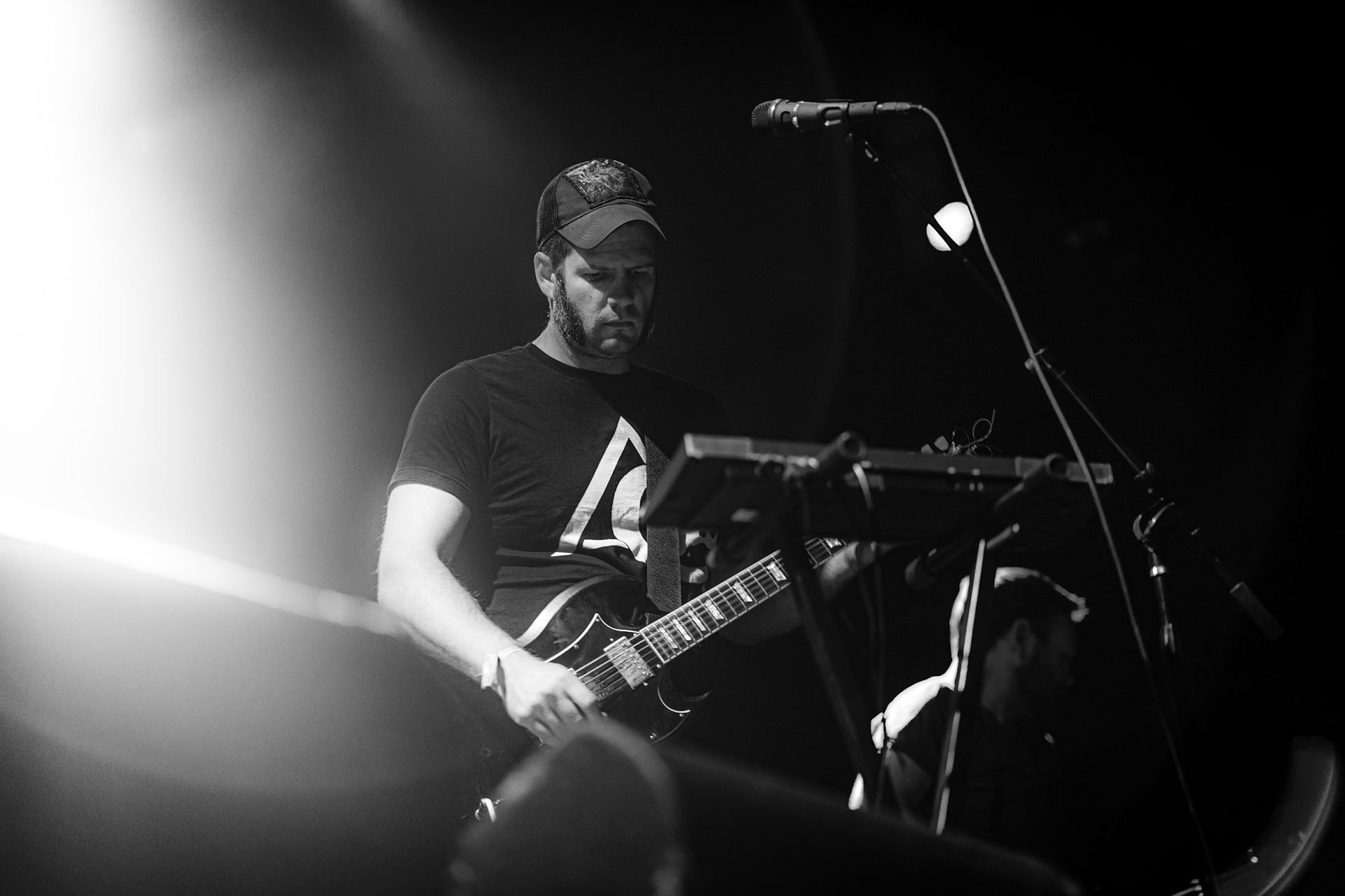
…
What have you two learned since The Unnatural World in terms of songwriting, performance, and artistry? Have you undergone any life changes or otherwise which now color Sea of Worry with new experience?
Barrett: I certainly hope were better at what we do, and maybe more thoughtful. I have kids now — that colors the entire process, even down to changing when I can record, and how often. But like most of our records, the thematic thoughtline isn’t super obvious to me in the moment. It becomes clearer when it’s all done and we can step back and take a look at the whole.
Macuga: Yeah, we have to be more economical with our time together. We’ve always lived a decent distance apart, but we no longer have the free time to spend a whole day musing on how to vaguely make “There Is No Food” sound even more far-away and sad in-between burritos and Virtua Fighter 4 matches, let alone adding crashing on the couch, waking up at some late, ungodly hour, and doing more of the same, the day after.
How do you view Deathconsciousness now that over a decade has passed since its release? When you look back that far, and on the music you wrote then, does it still have applicability now to Have a Nice Life’s direction, and Sea of Worry specifically? Also, Deathconsciousness has developed quite a reputation, as something like the Bandcamp comments would suggest – is this fame, so to speak, a blessing or curse or something else altogether?
Barrett: We’re lucky anyone knows who we are at all. I’m nothing but thankful that people like our stuff, and that that affords us really cool opportunities to do what we love.
Macuga: It’s applicable to the direction of multiple other projects we embarked upon in addition. Dan took some elements of DC into Giles Corey and Black Wing with him to sharpen and specialize, I took others into The Flowers of St. Francis and Consumer. As for the line to Sea of Worry, we have continued to explore a range of dynamics, styles, and textures to create a satisfying narrative or sequence.
If you could share one personal story, fact, or moment from your lives to help contextualize Have a Nice Life (and Sea of Worry specifically) for fans, what would it be? Is there anything listeners should know about you two, or is the purpose of the music (if any) more to speak for itself?
Barrett: I don’t think there’s anything people have to know about us, no. But when people ask, I just say that we recorded that first record completely unaware anyone would hear it. We spent no money, did everything ourselves — we were completely in our own world, our own little bubble. And we try to keep that same spirit in everything we do.
Macuga: I’m gonna go ahead and retract that whole navelgazing exploration of my professional neuroses as a teacher. Nobody has to read that on a high profile blog. It was just a long day.
How was your experience at Roadburn earlier this year playing Deathconsciousness in full? Did anything in particular about that festival stick out to you, whether in terms of fan reactions or the performance itself?
Barrett: Roadburn was such an incredible experience — I highly recommend people go if they have the chance. Performing the whole record was incredibly moving, and draining. People were crying, I was crying. It just felt like a once in a lifetime moment — something I won’t forget.
Macuga: I loved that, generally, everyone’s there for brass tacks, everyone’s there for art. And, as for the curation, the festival delivers in good faith. No matter which stage you wandered to — intense, committed performances and attentive audiences. Three days and nights in a row, I never once walked into a room and felt, “Eh, this is lame.”
…
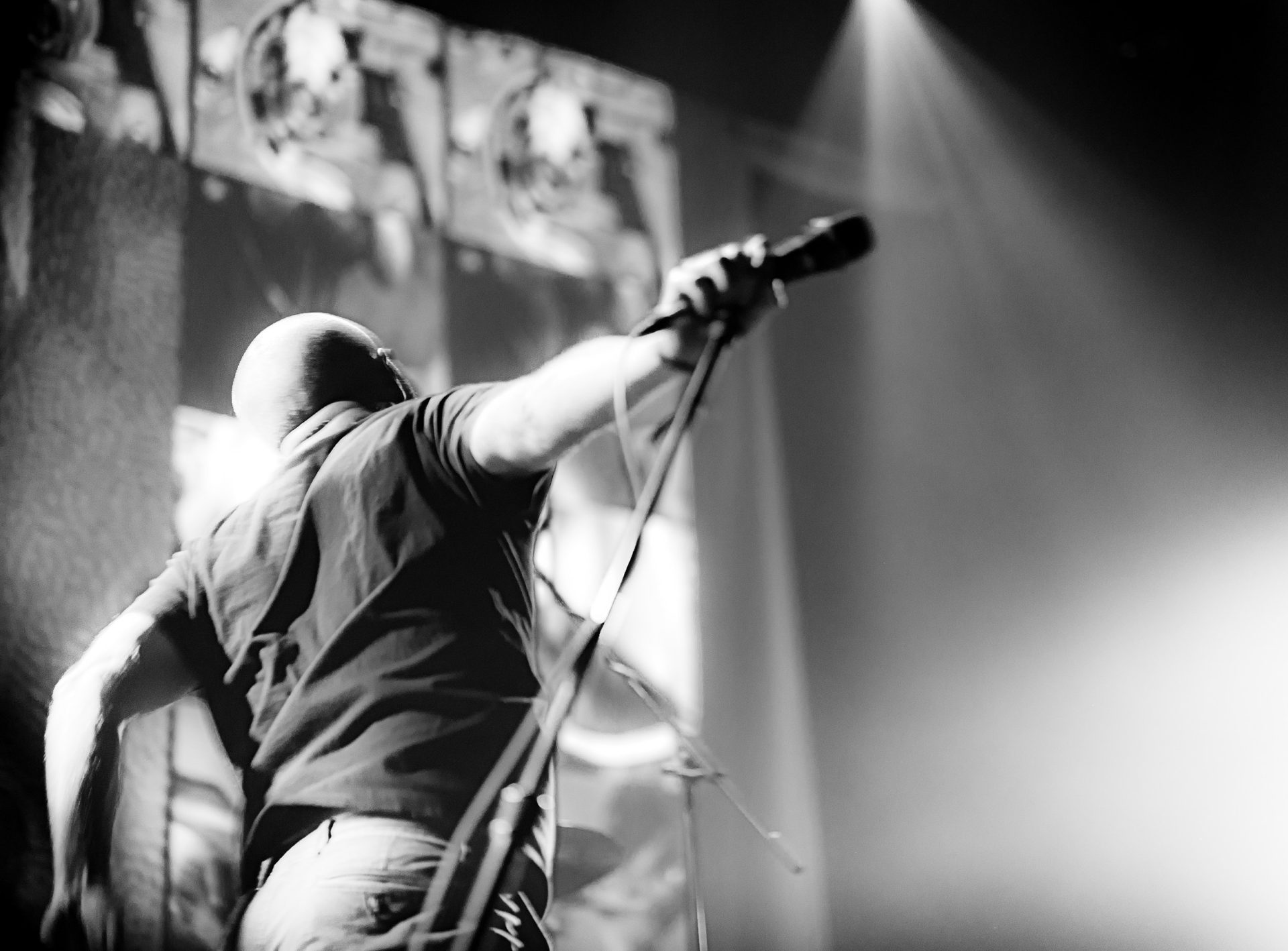
…
How might you reflect on Sea of Worry five or maybe ten years down the road? Is that thinking too far ahead, or does your retrospective on Deathconsciousness and The Unnatural World help you understand how your music ages in your memory and perception? It could very well be that Have a Nice Life “lives in the moment,” which would also be an interesting perspective to discuss and describe.
Barrett: Every record we do is such a time capsule. Part of the reason our old stuff is still emotional to perform is that it immediately brings me back to whatever I was doing in that moment in time.
But that makes it hard to understand the material when it comes out. I write in the moment, sometimes while I’m recording. Things emerge and only make sense to me later.
Every year you look back on your younger self and think how foolish you were, how you didn’t know anything. I’m constantly doing that, because my old self is right there, on vinyl, staring back at me. So maybe I’m used to the idea that I’m almost certainly fucking everything up. And that I don’t know what I need to know.
Macuga: Our excellent live band collaborators present on the A-side are certainly a part of the moment. We don’t know what we don’t know about how well we pulled it off, yet, but hopefully we’re still working with them down the line when we have adequate distance to truly evaluate it.
…
Sea of Worry releases tomorrow via The Flenser. Check out some additional shots from the band’s Psycho Las Vegas 2019 performance below:
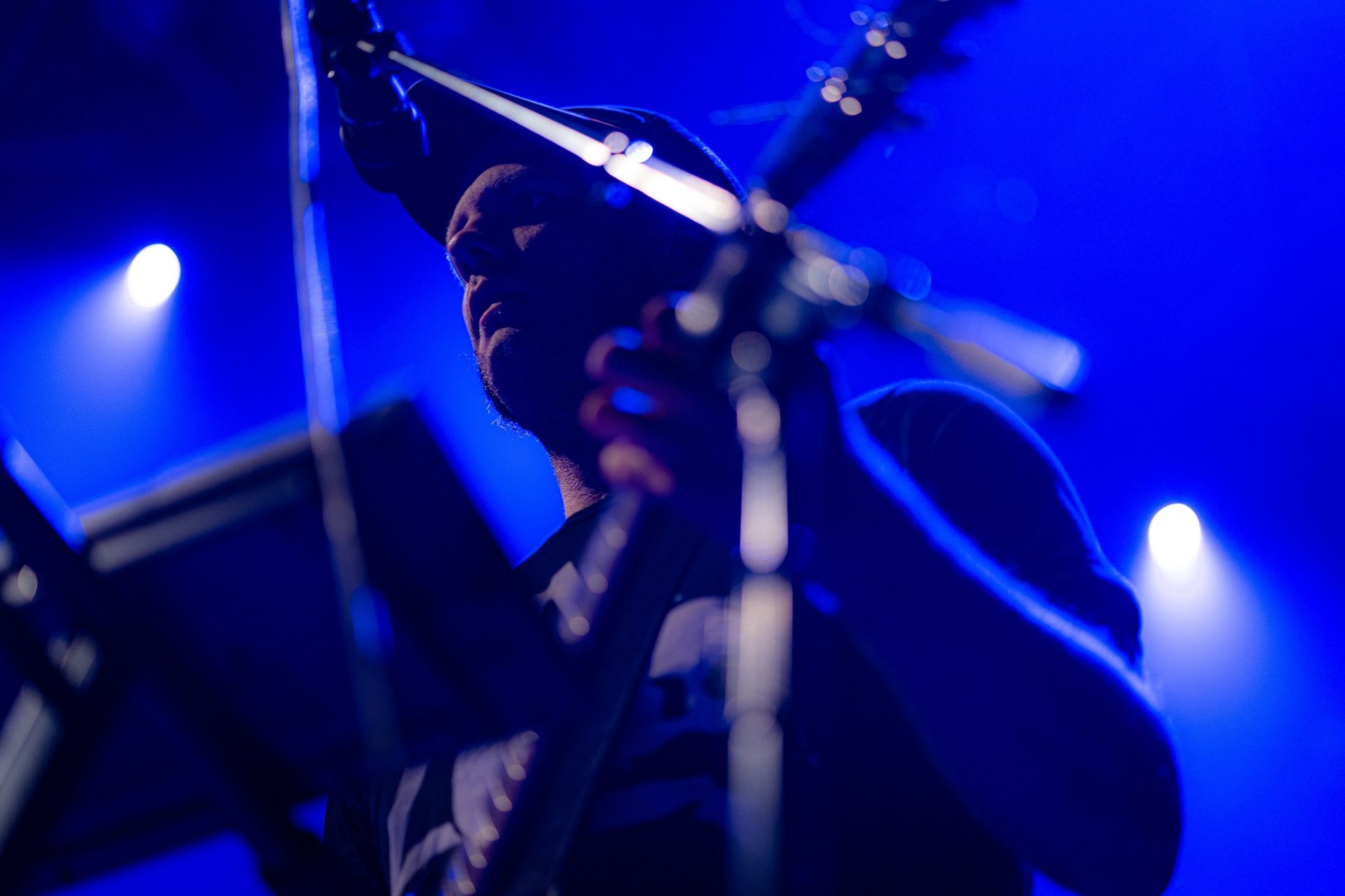
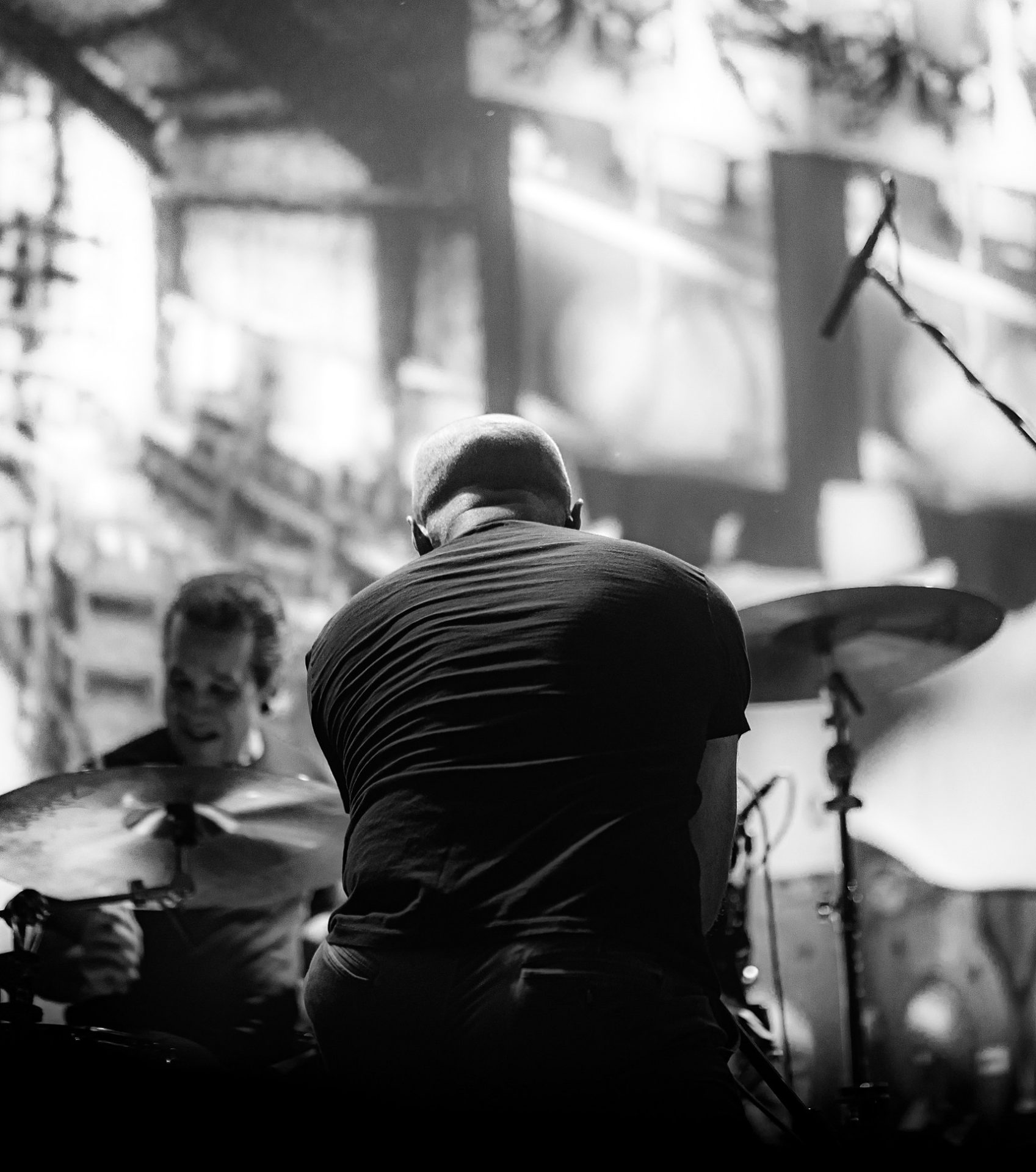
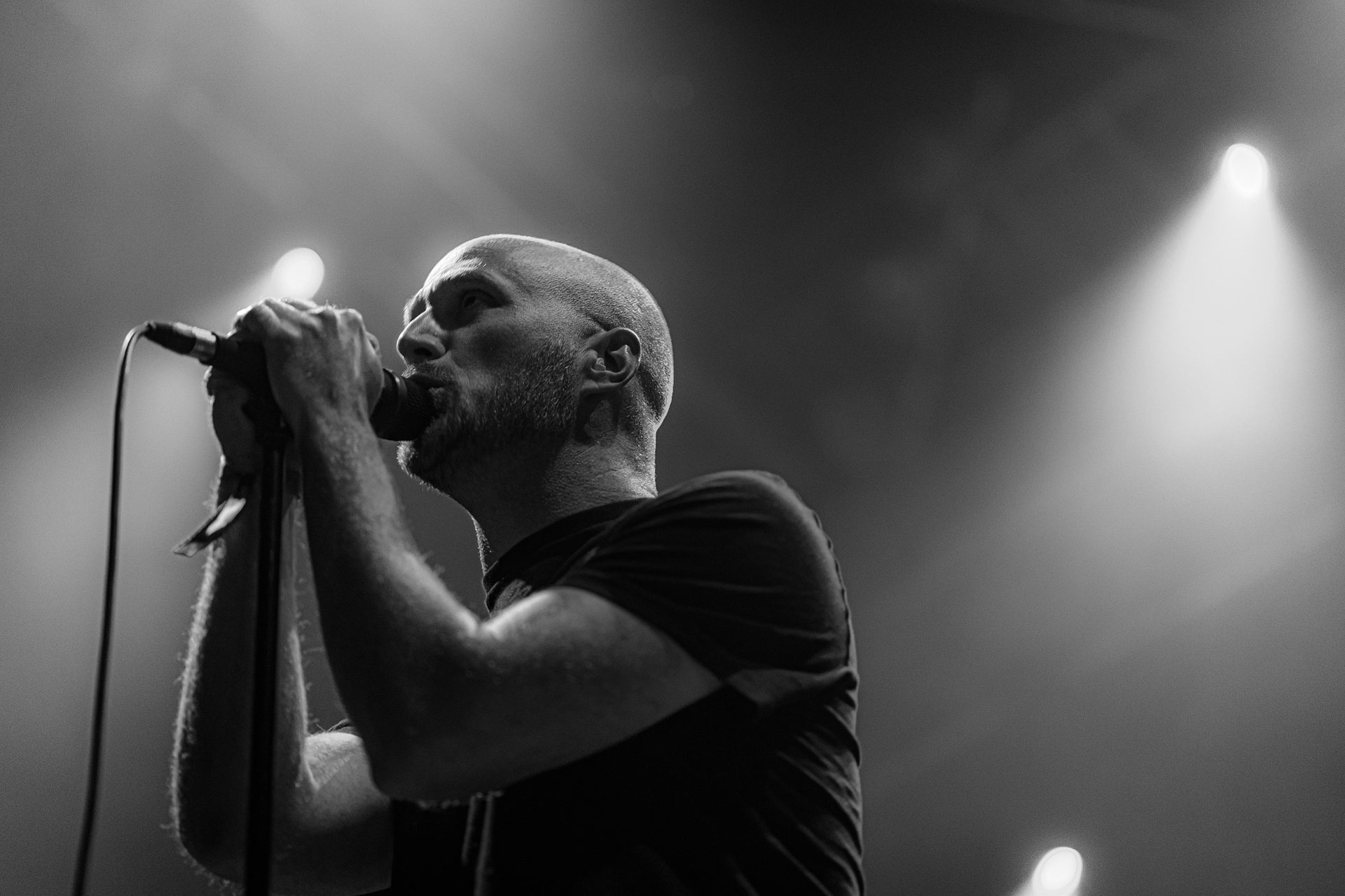
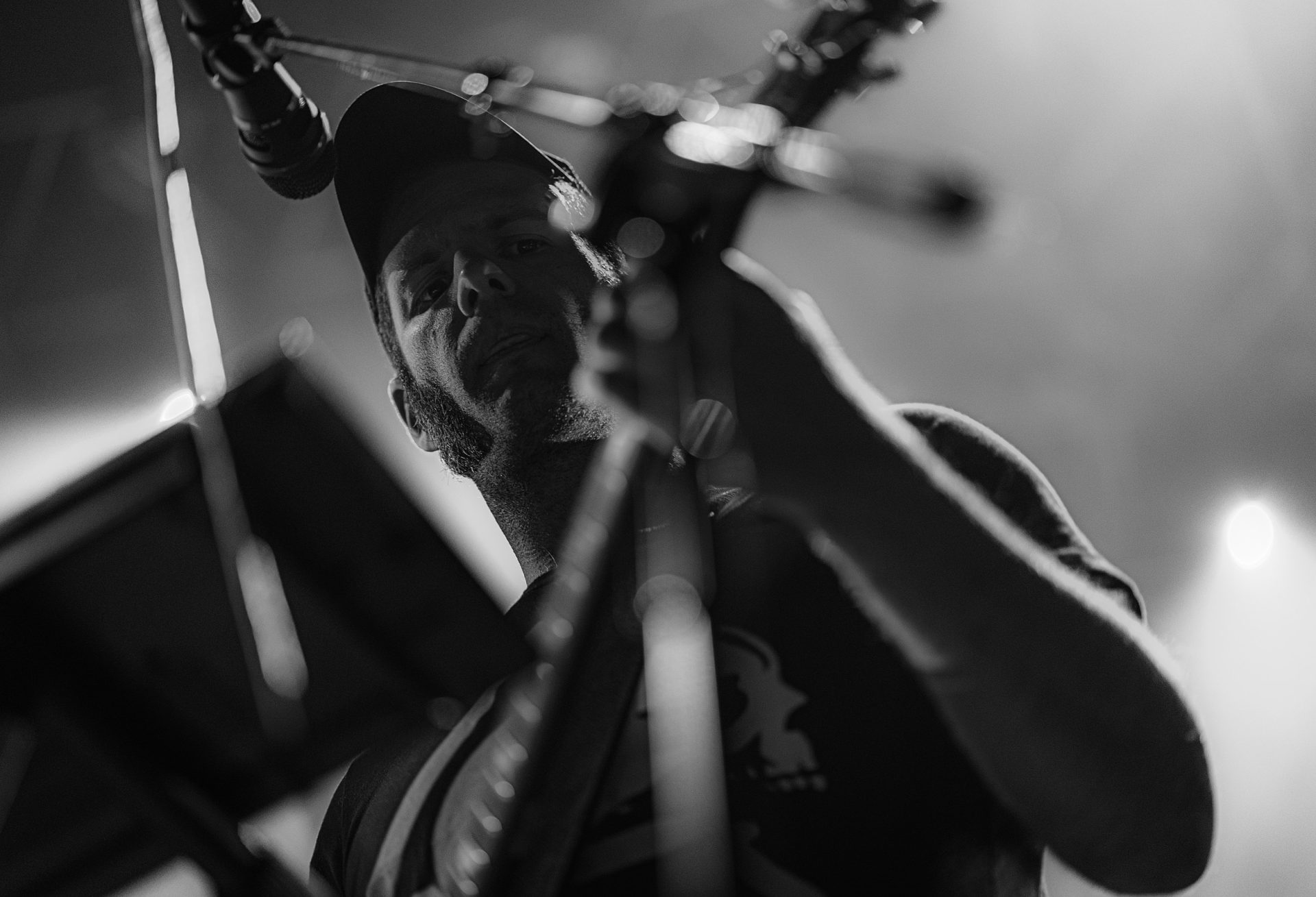
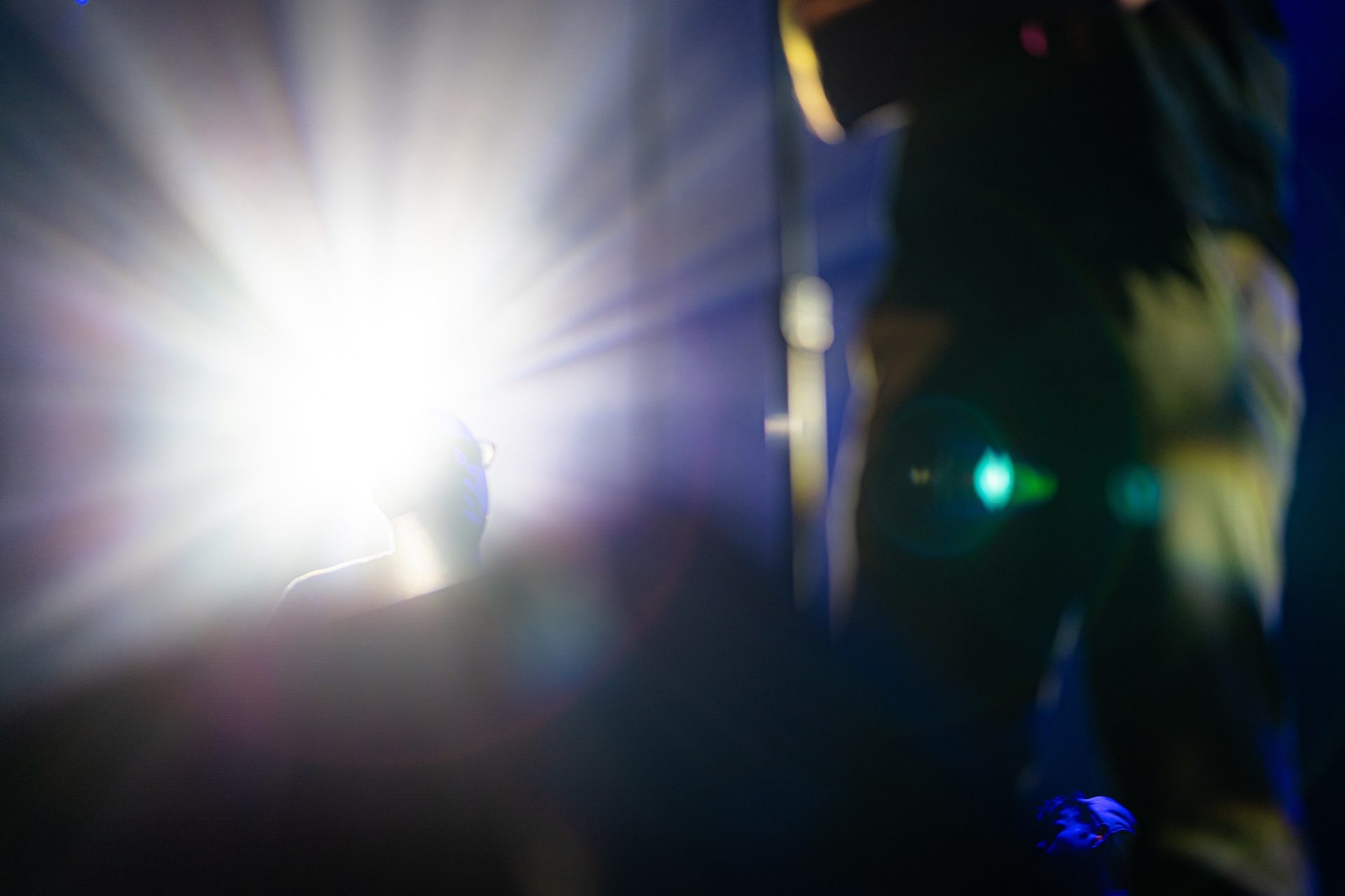
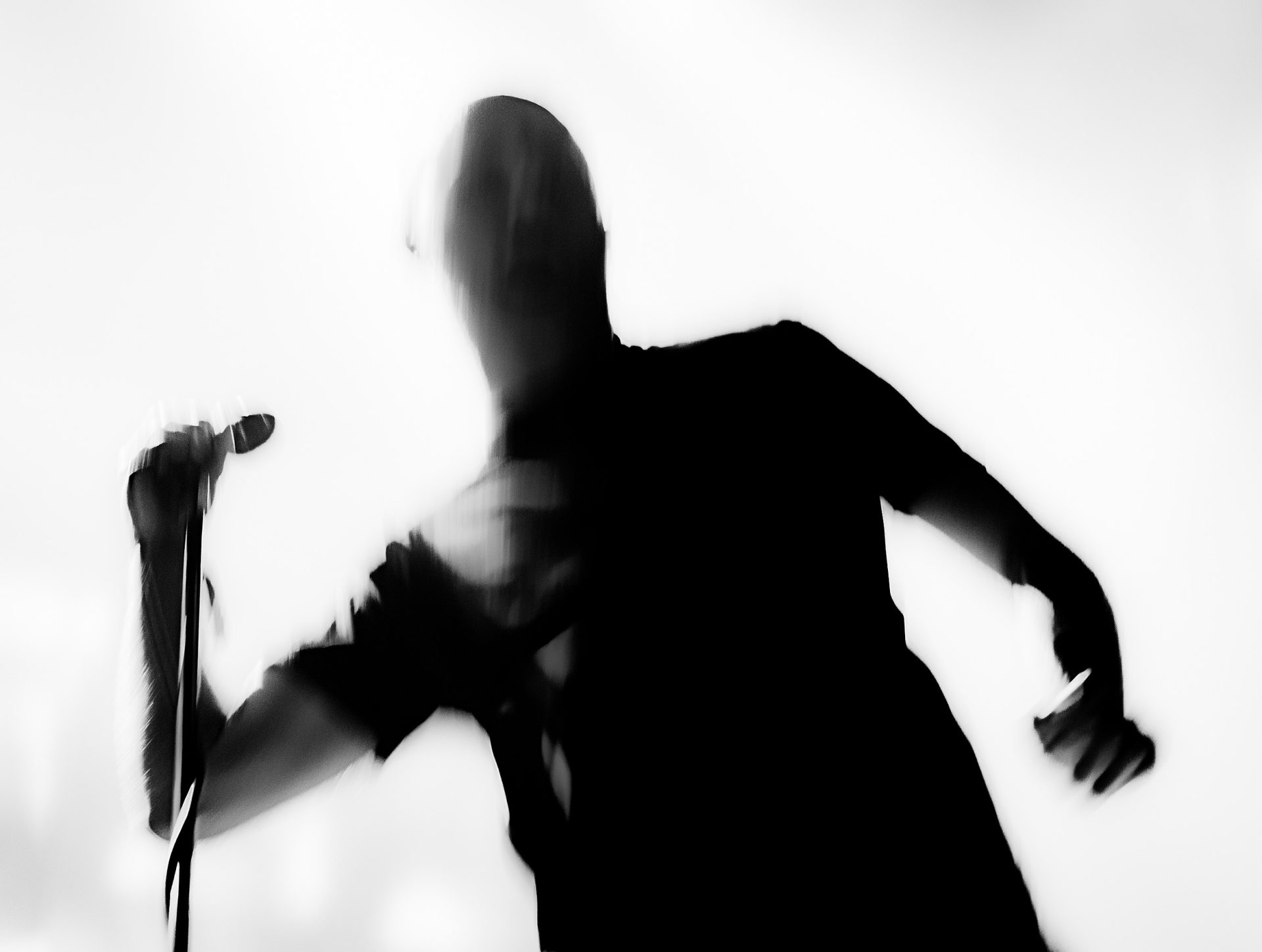
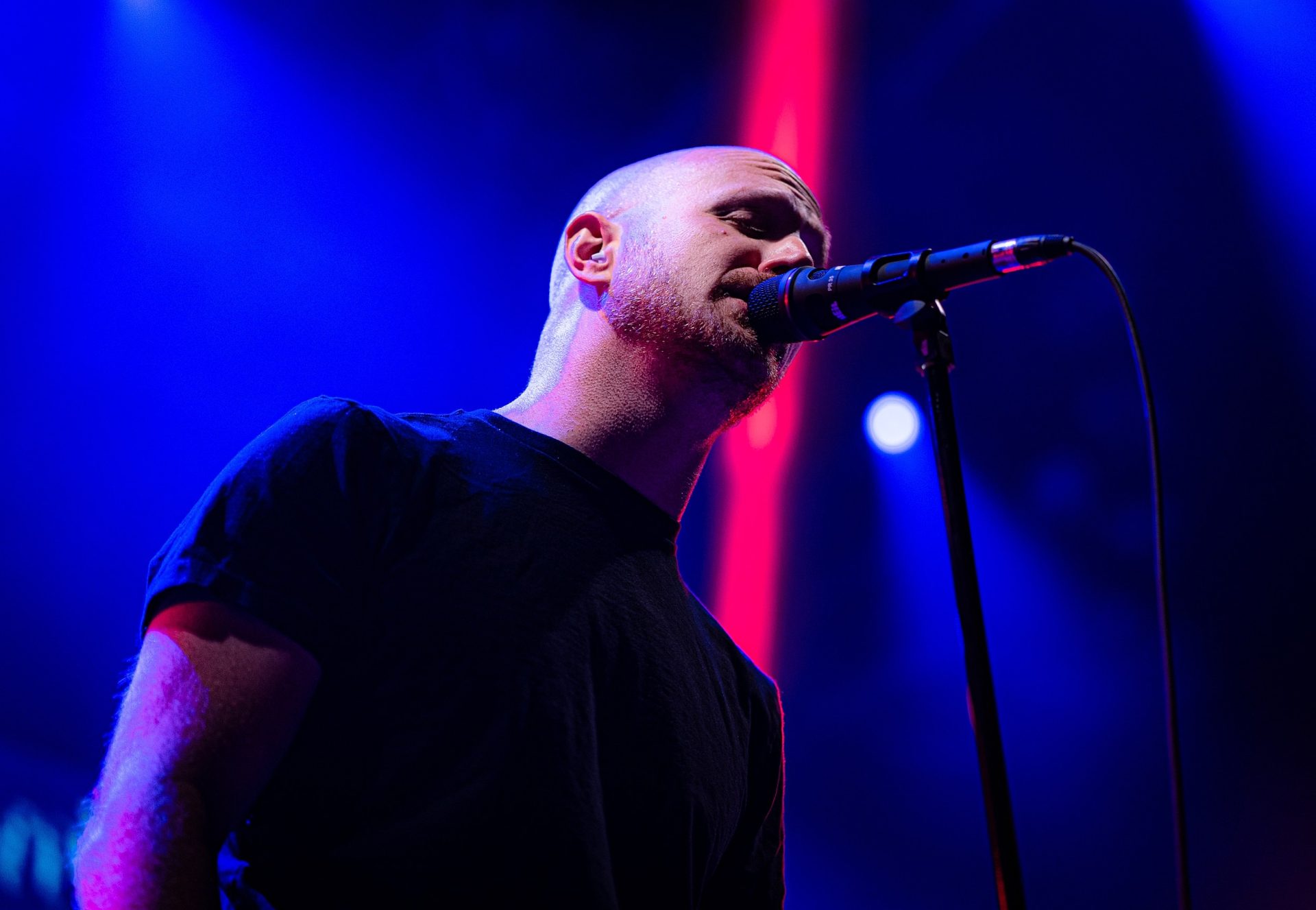
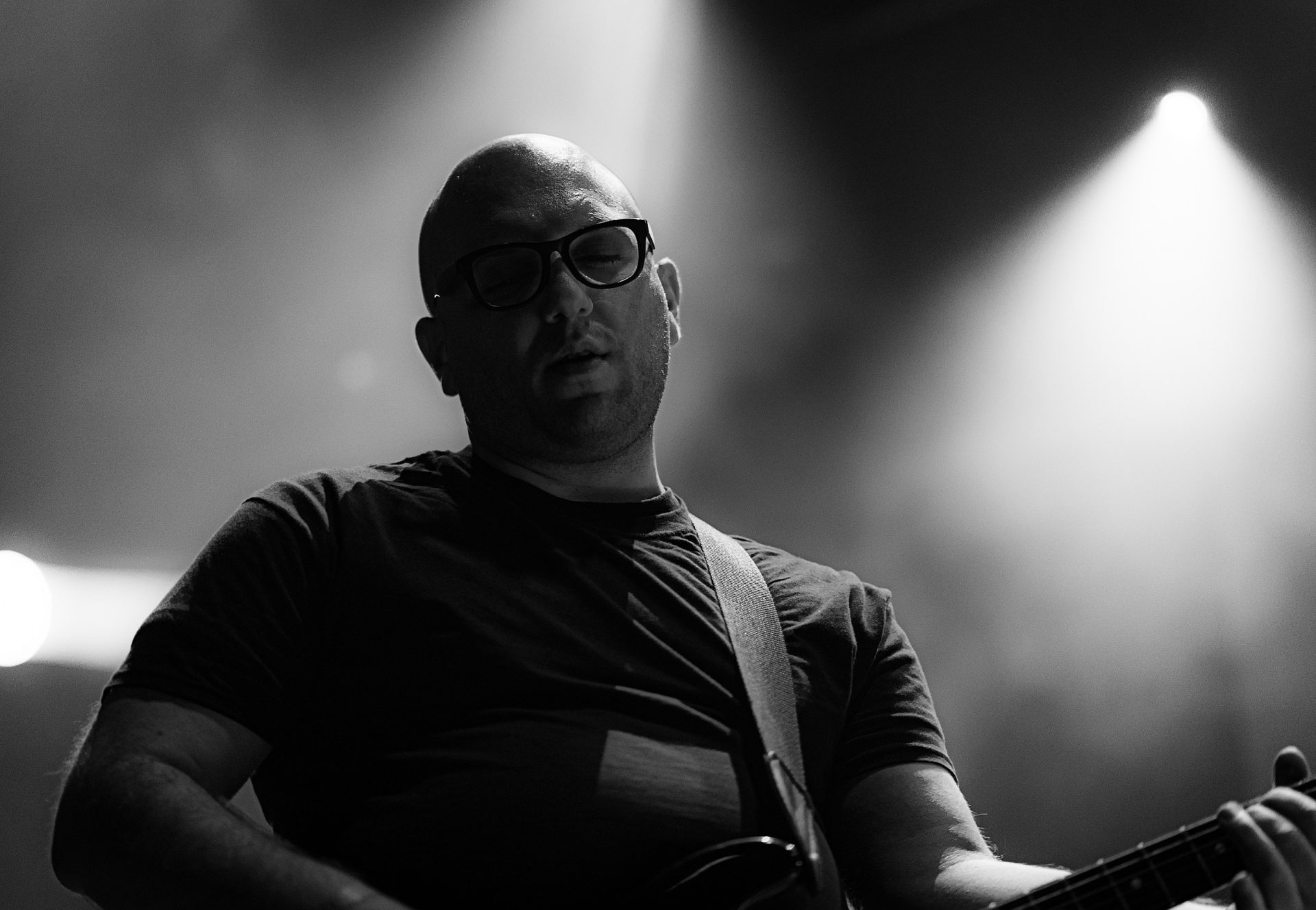
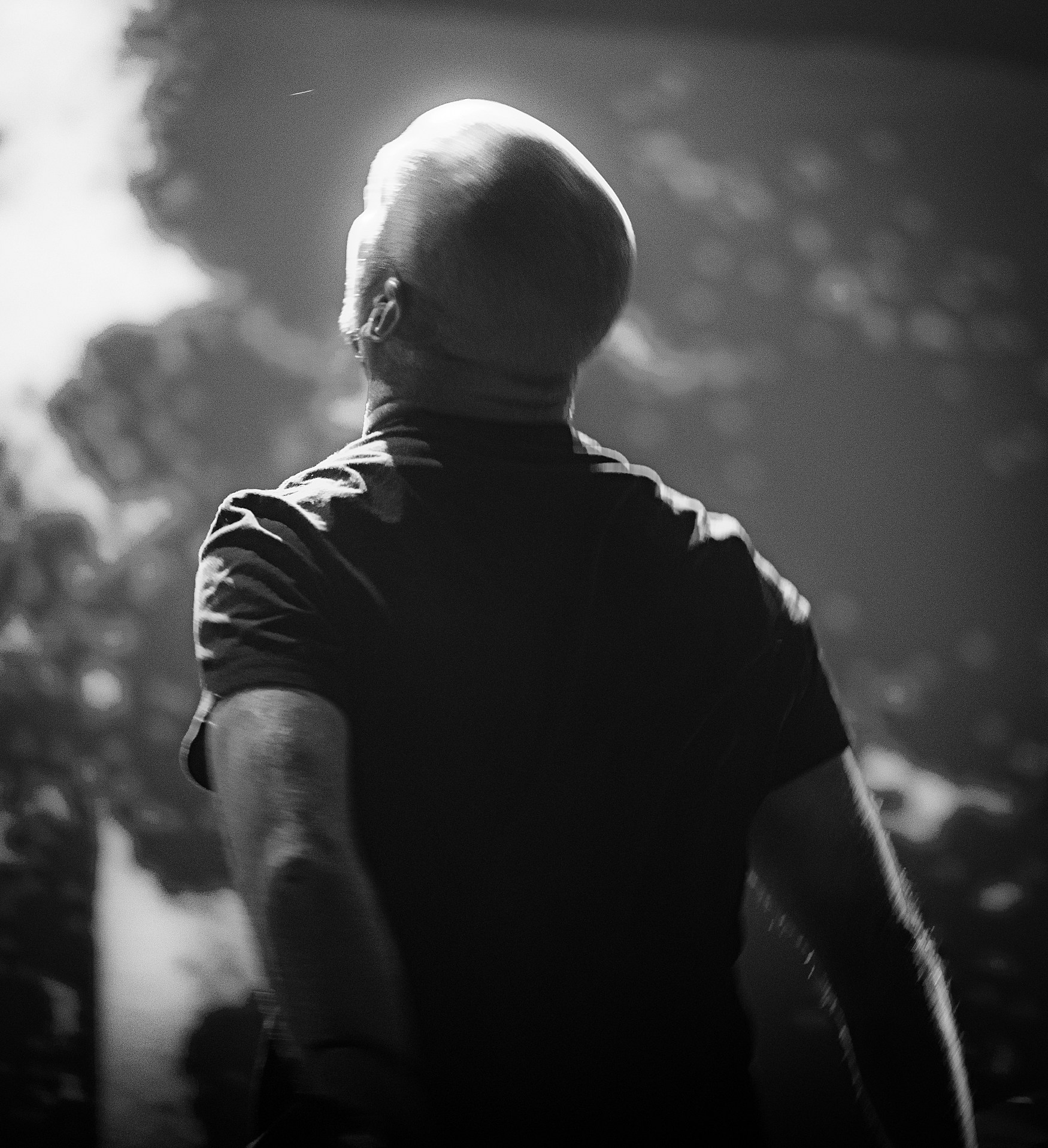
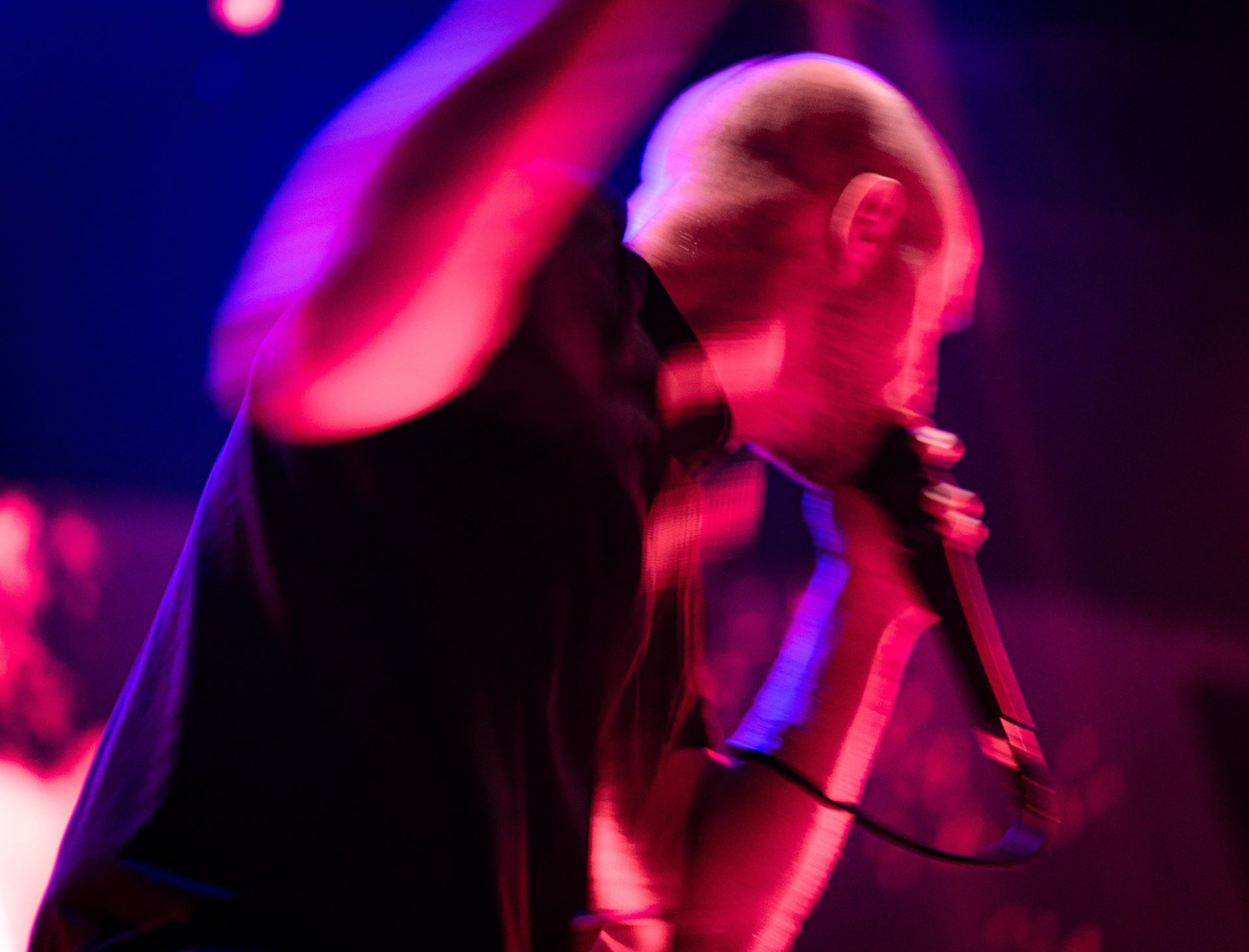
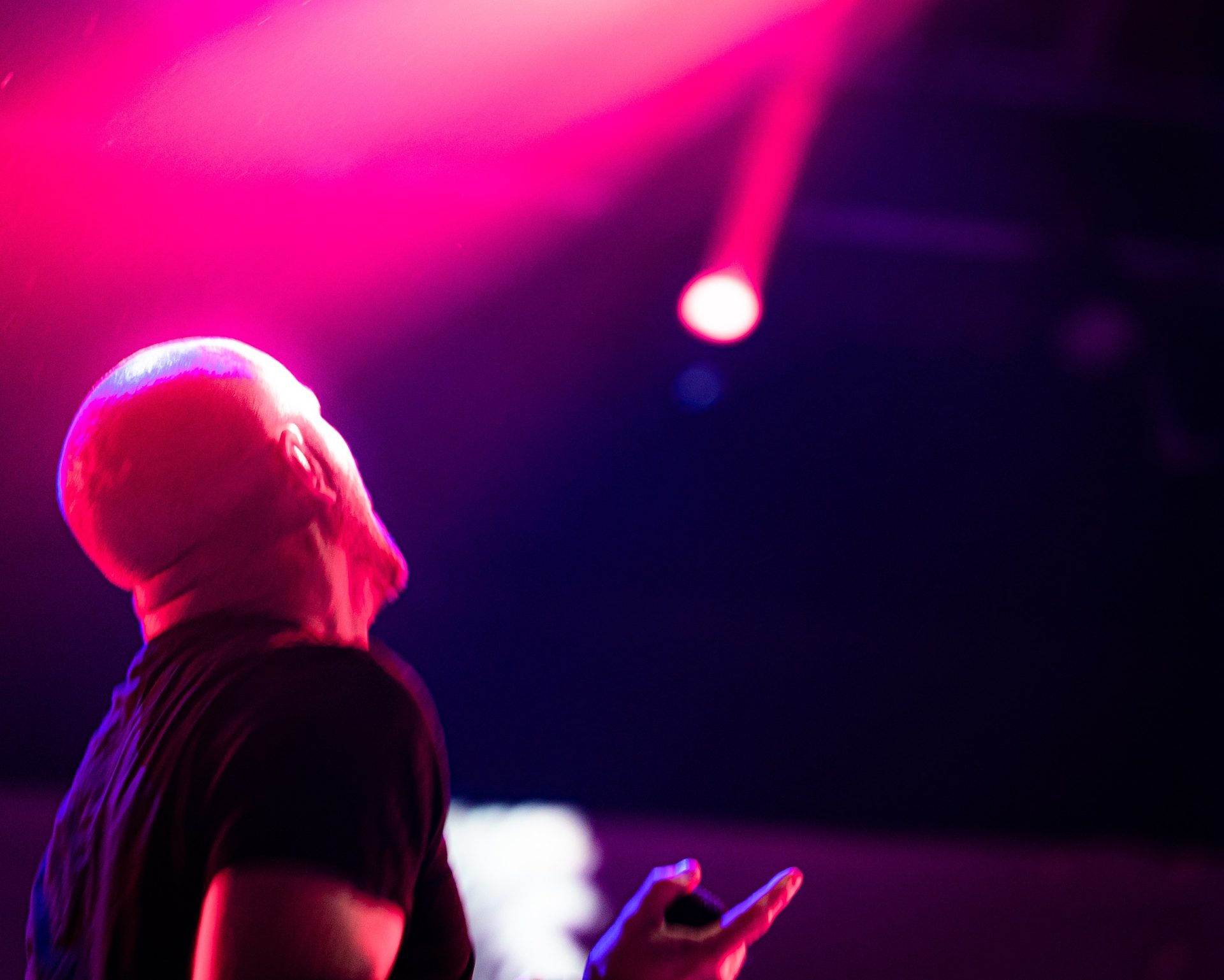
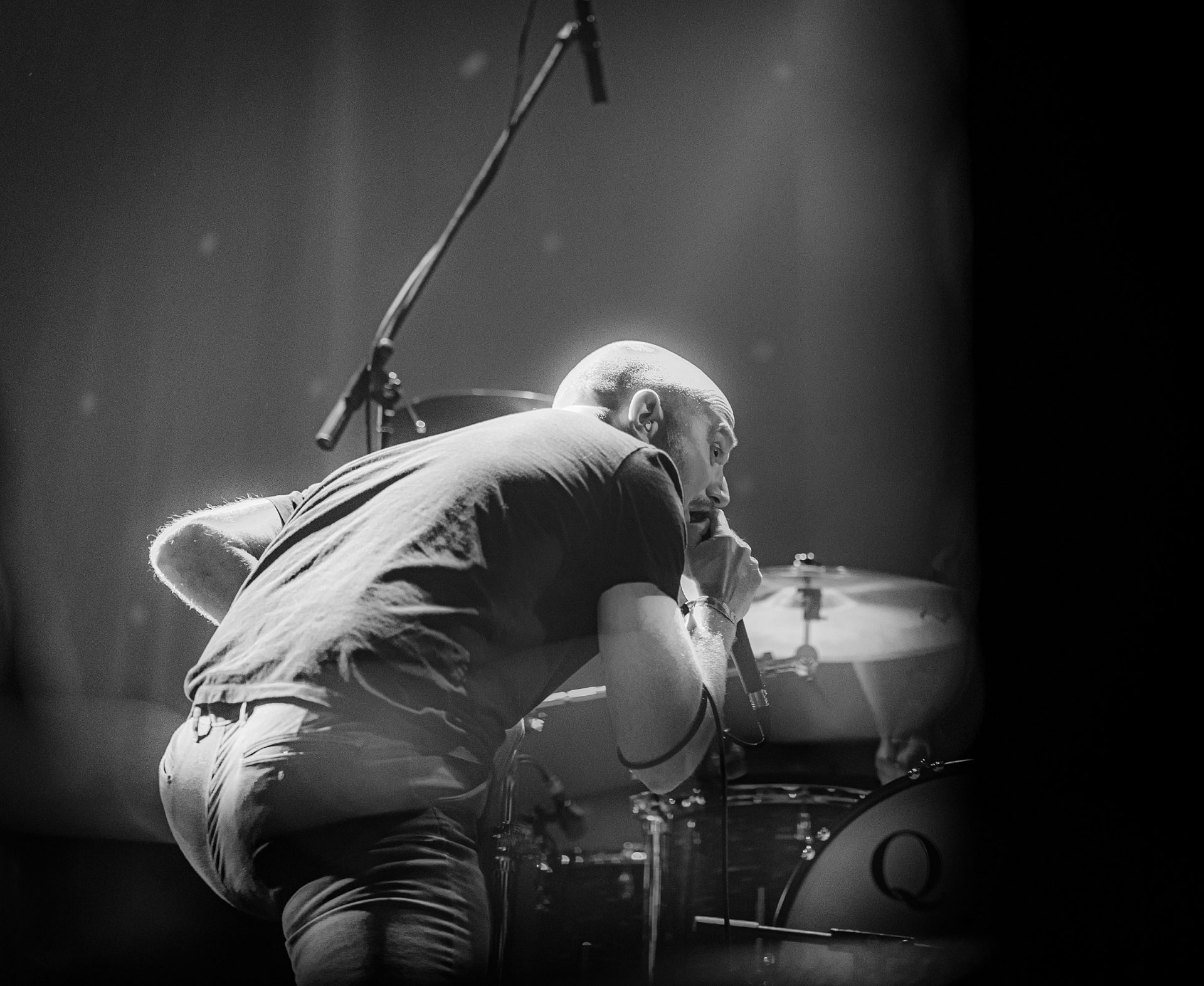
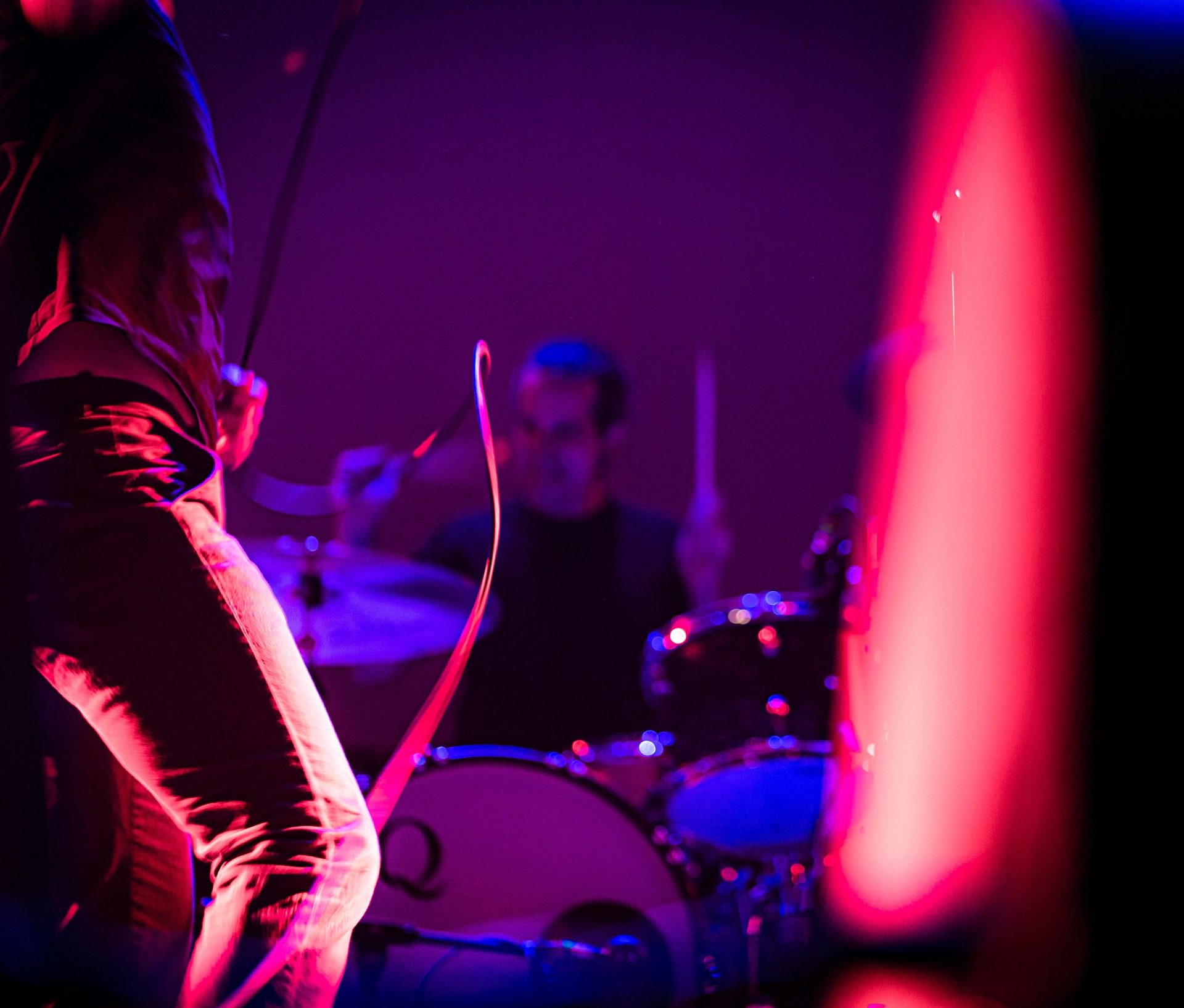
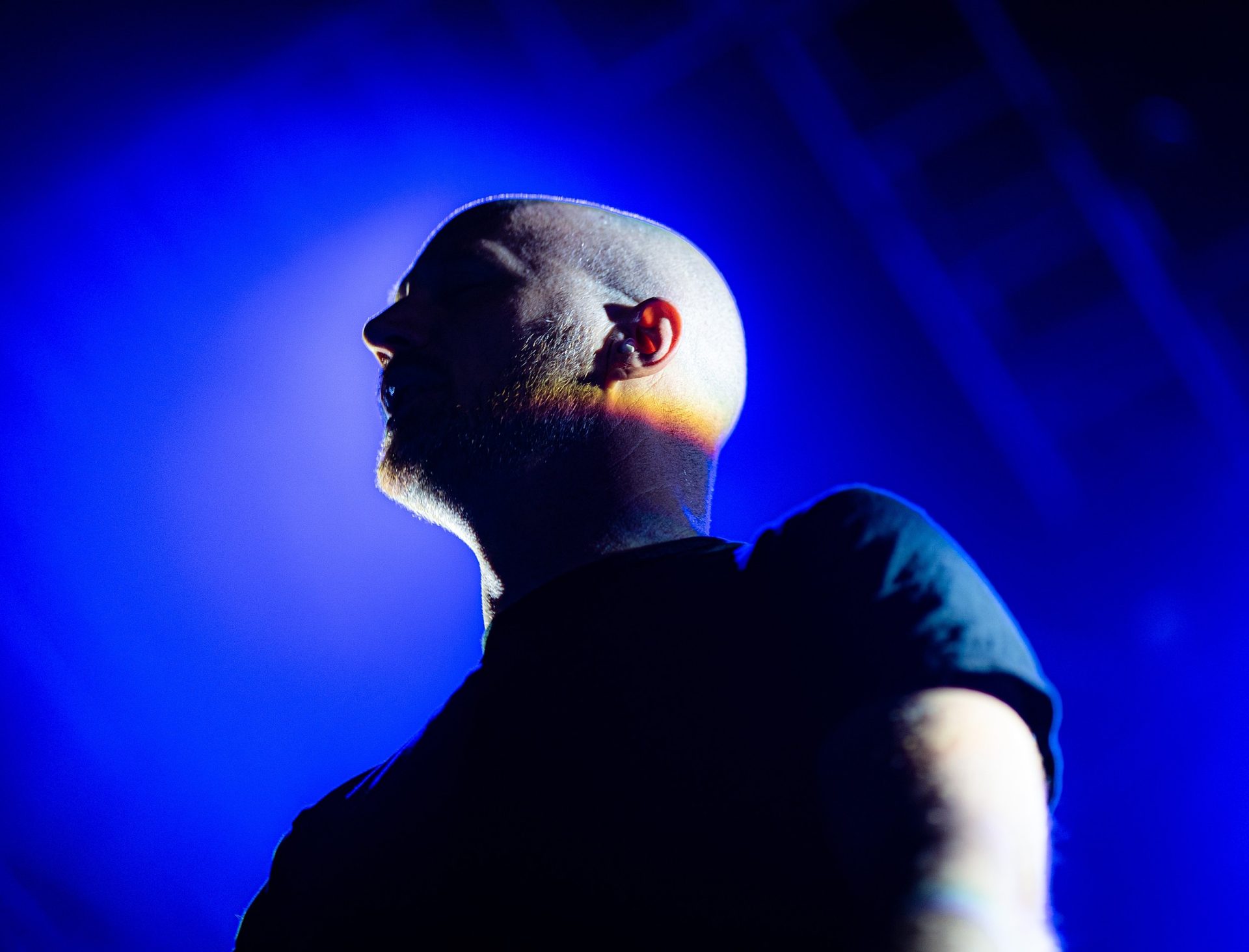
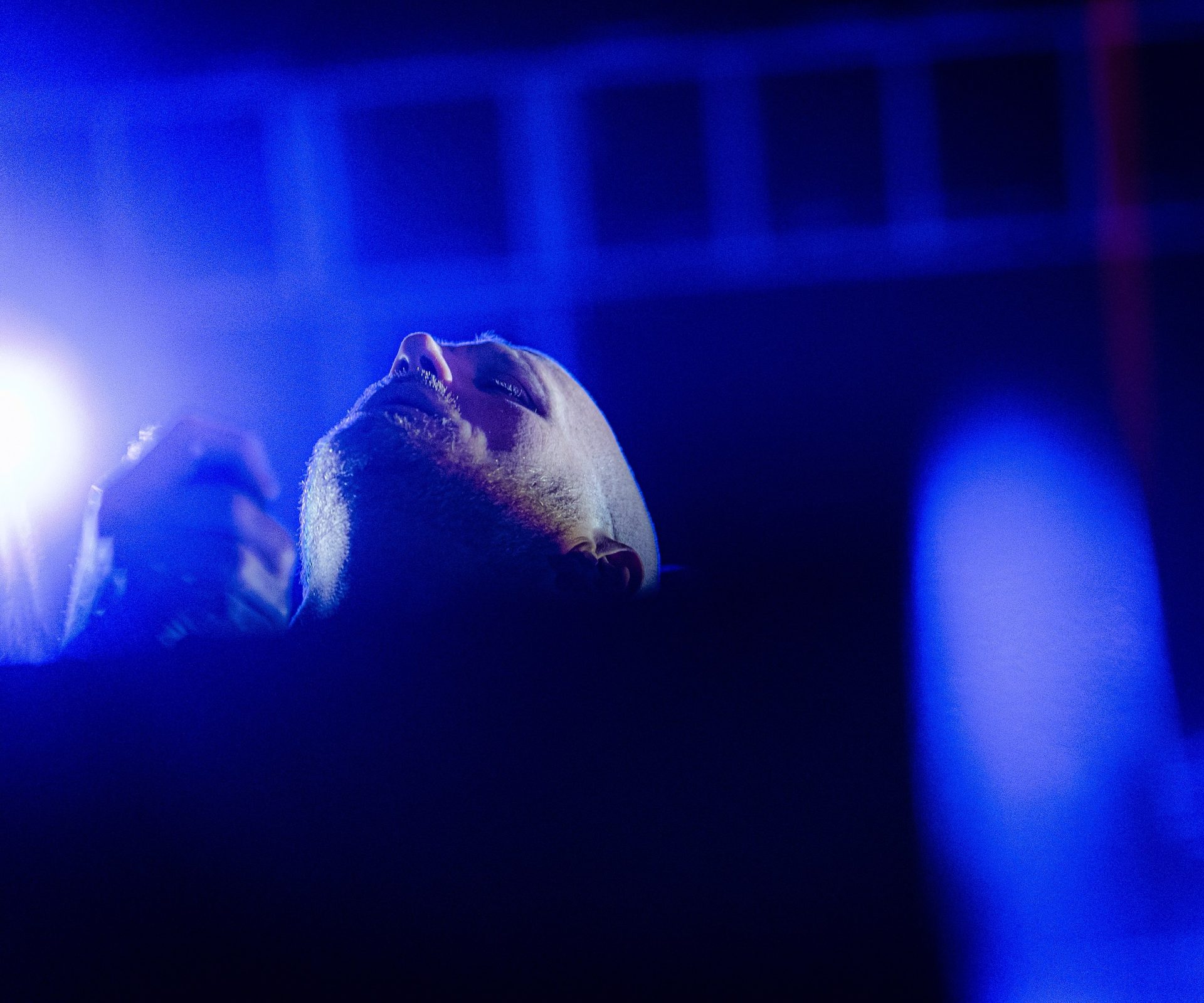

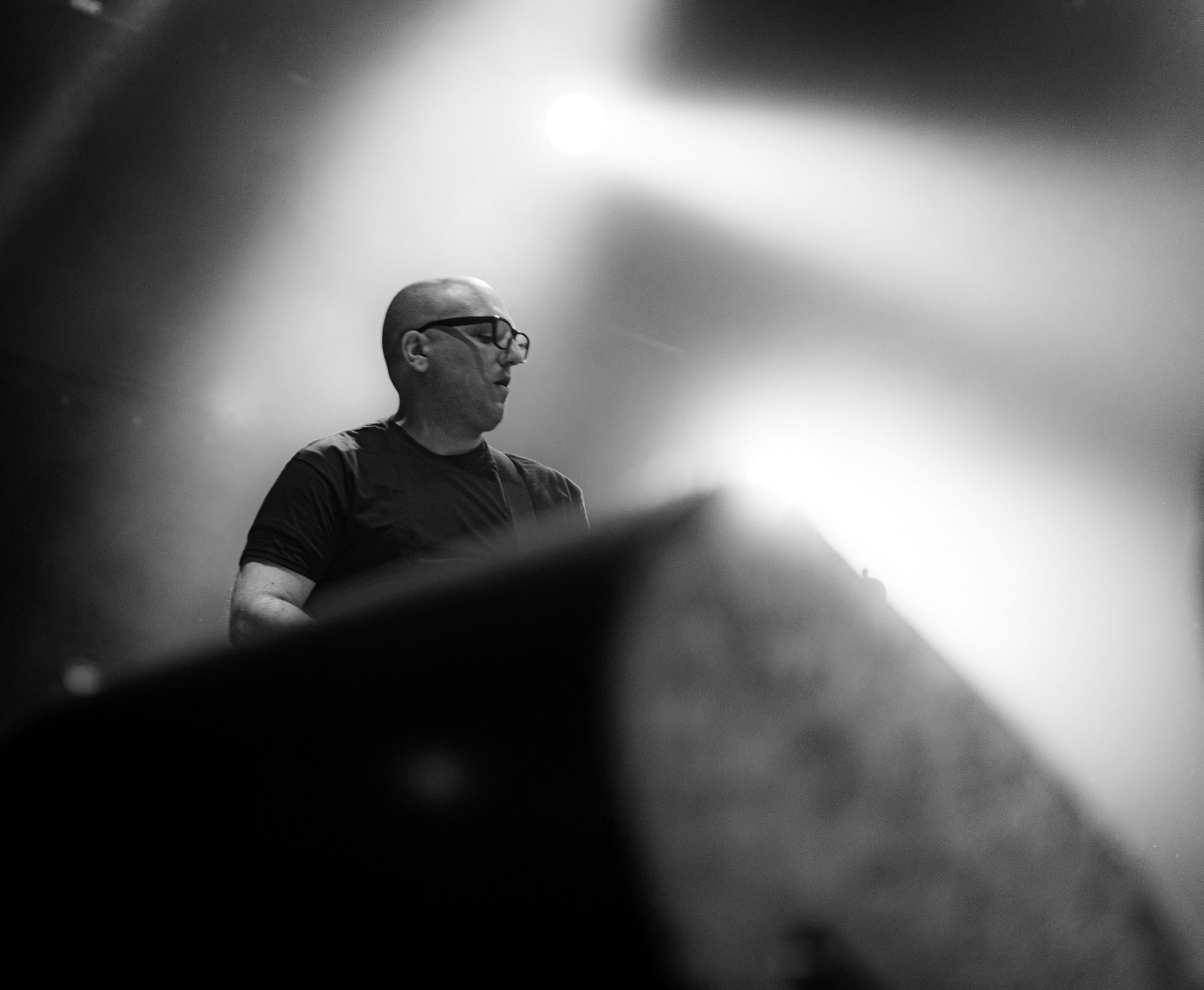
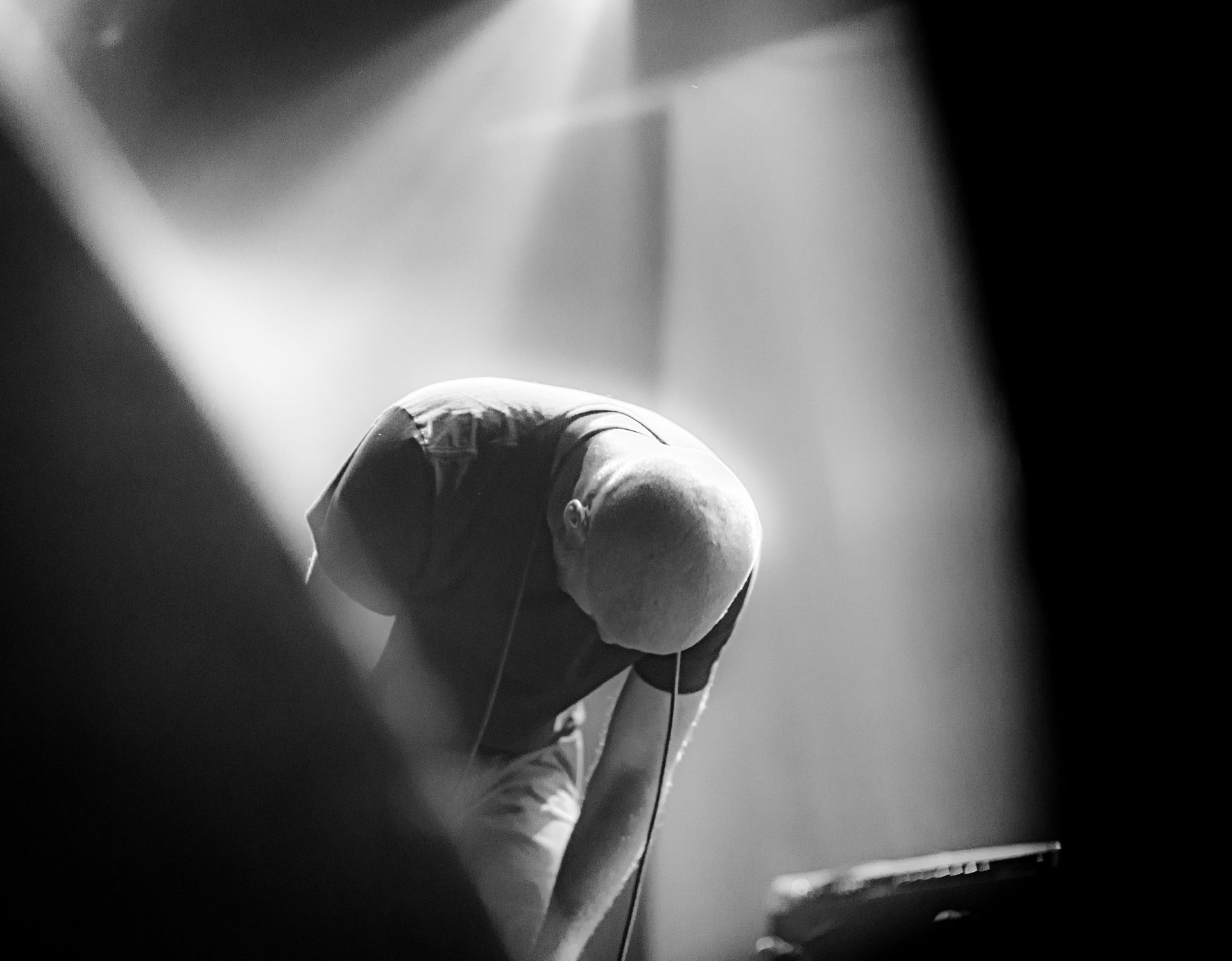
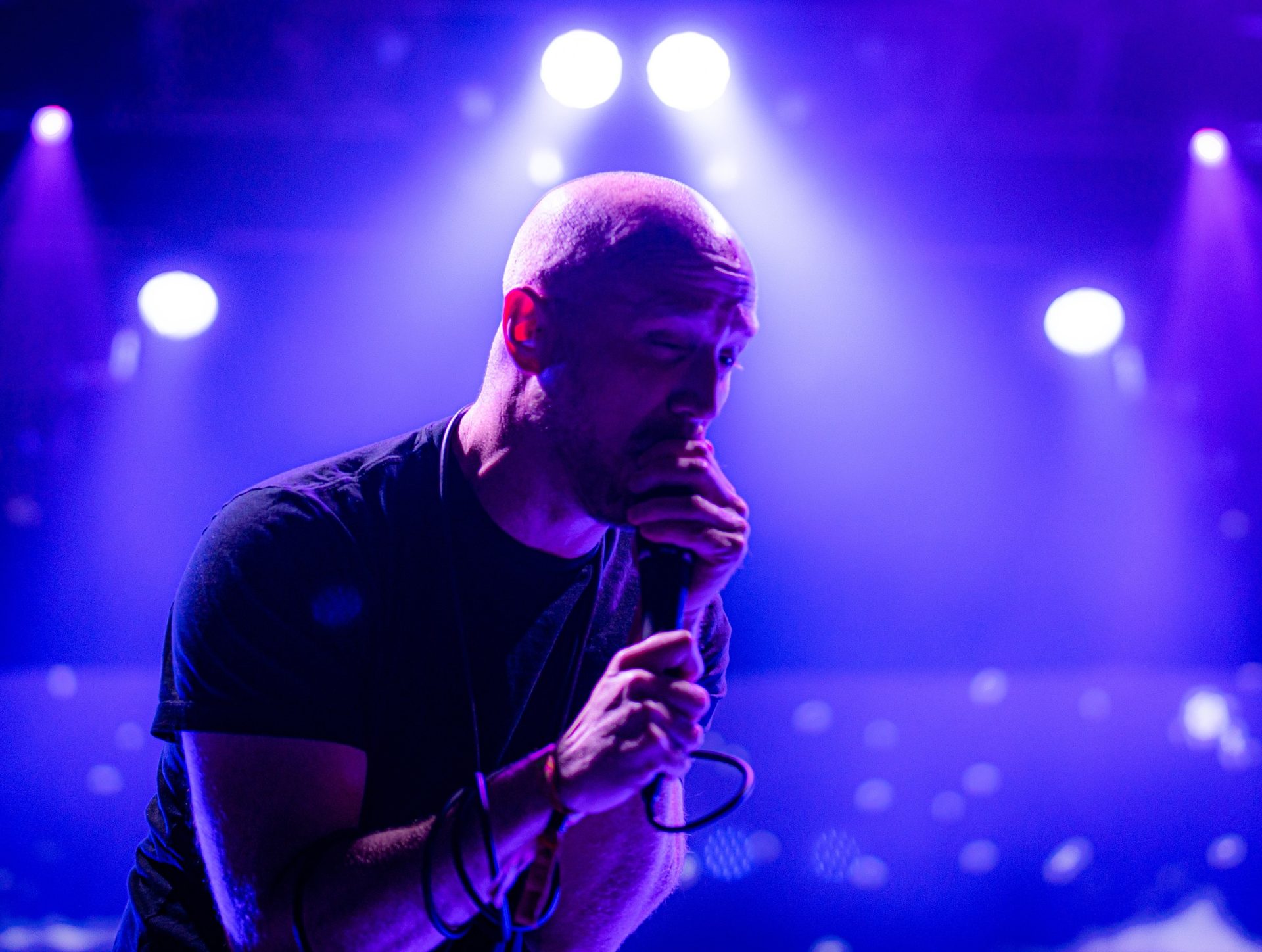
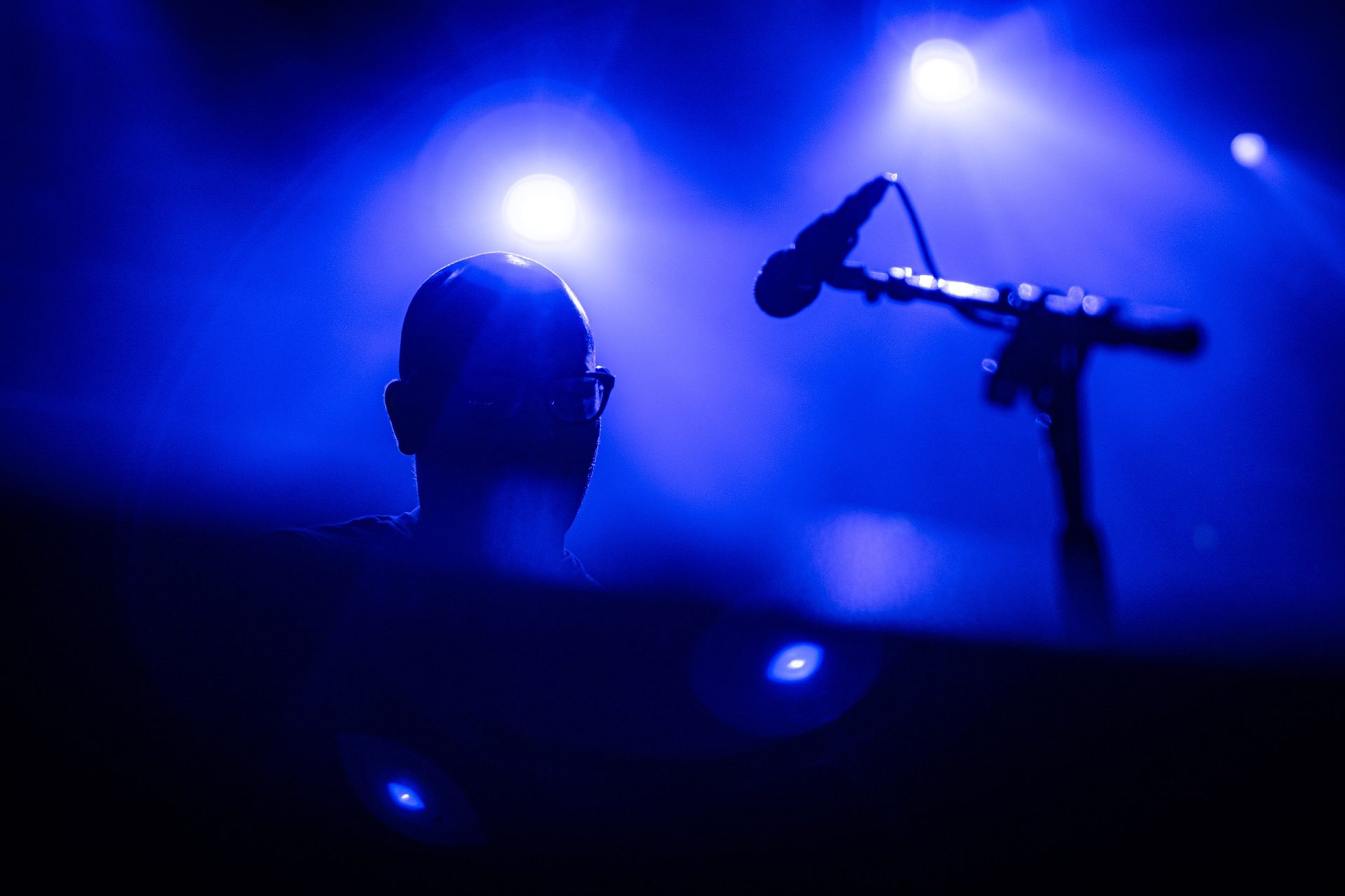
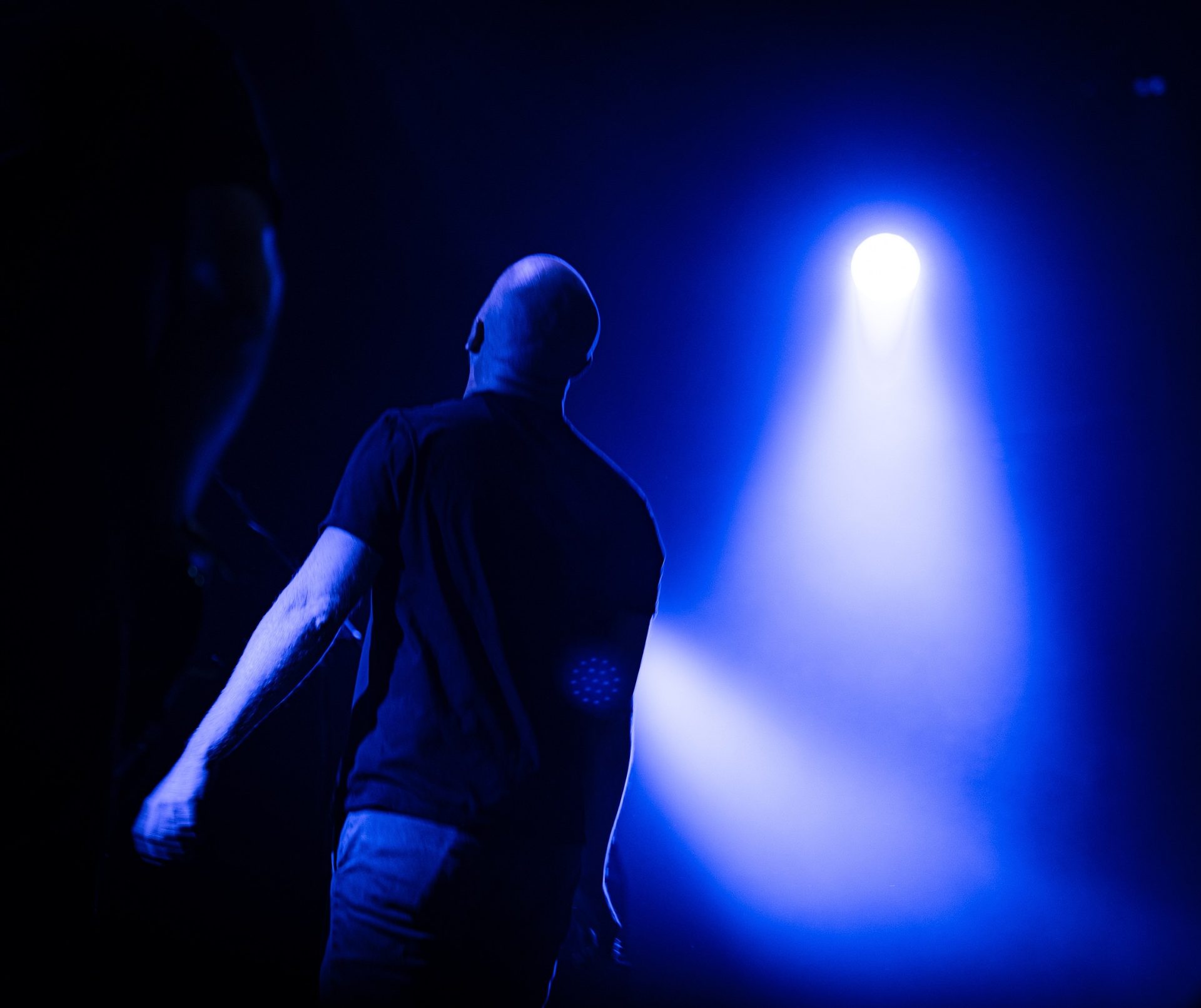
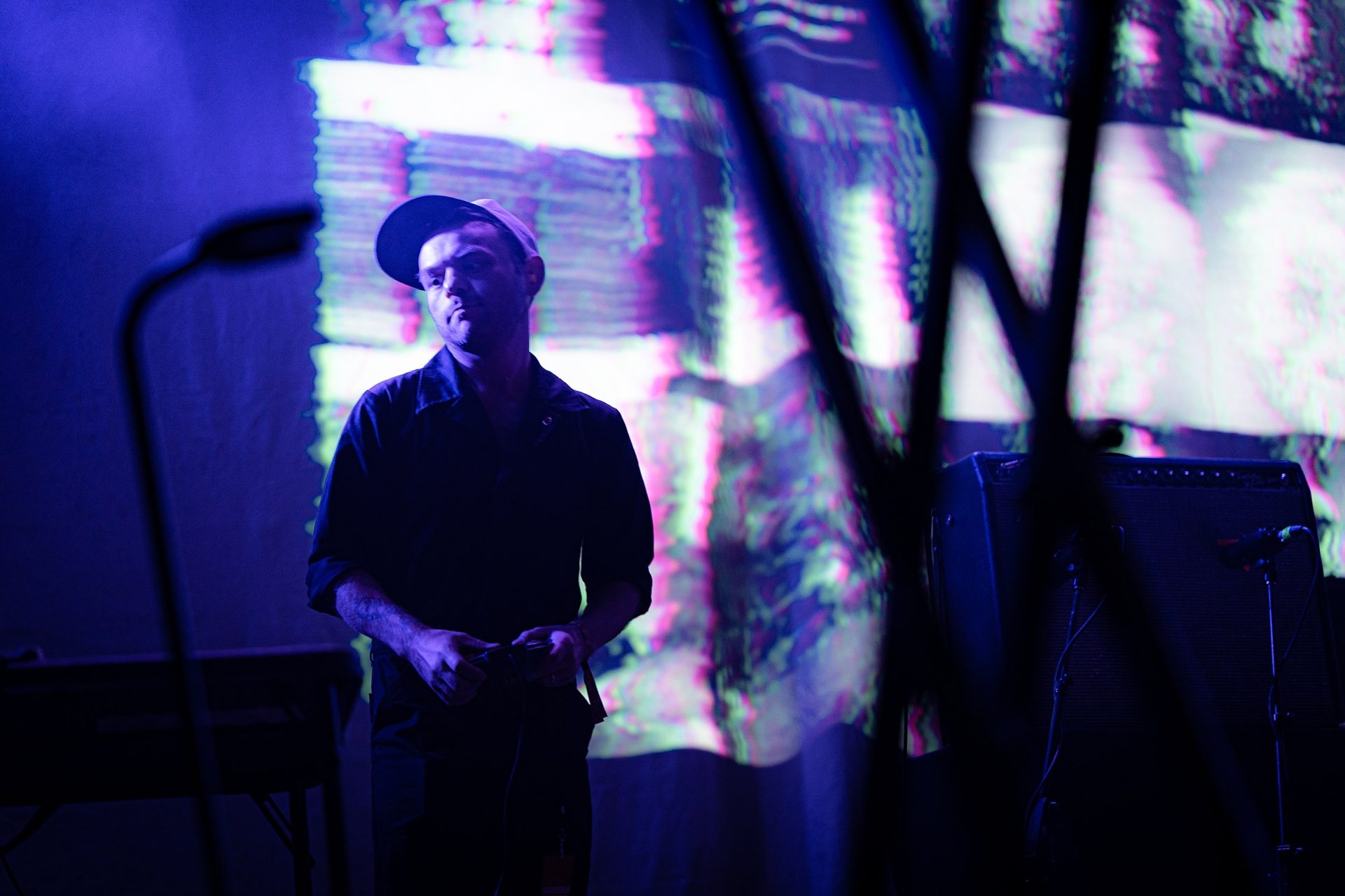
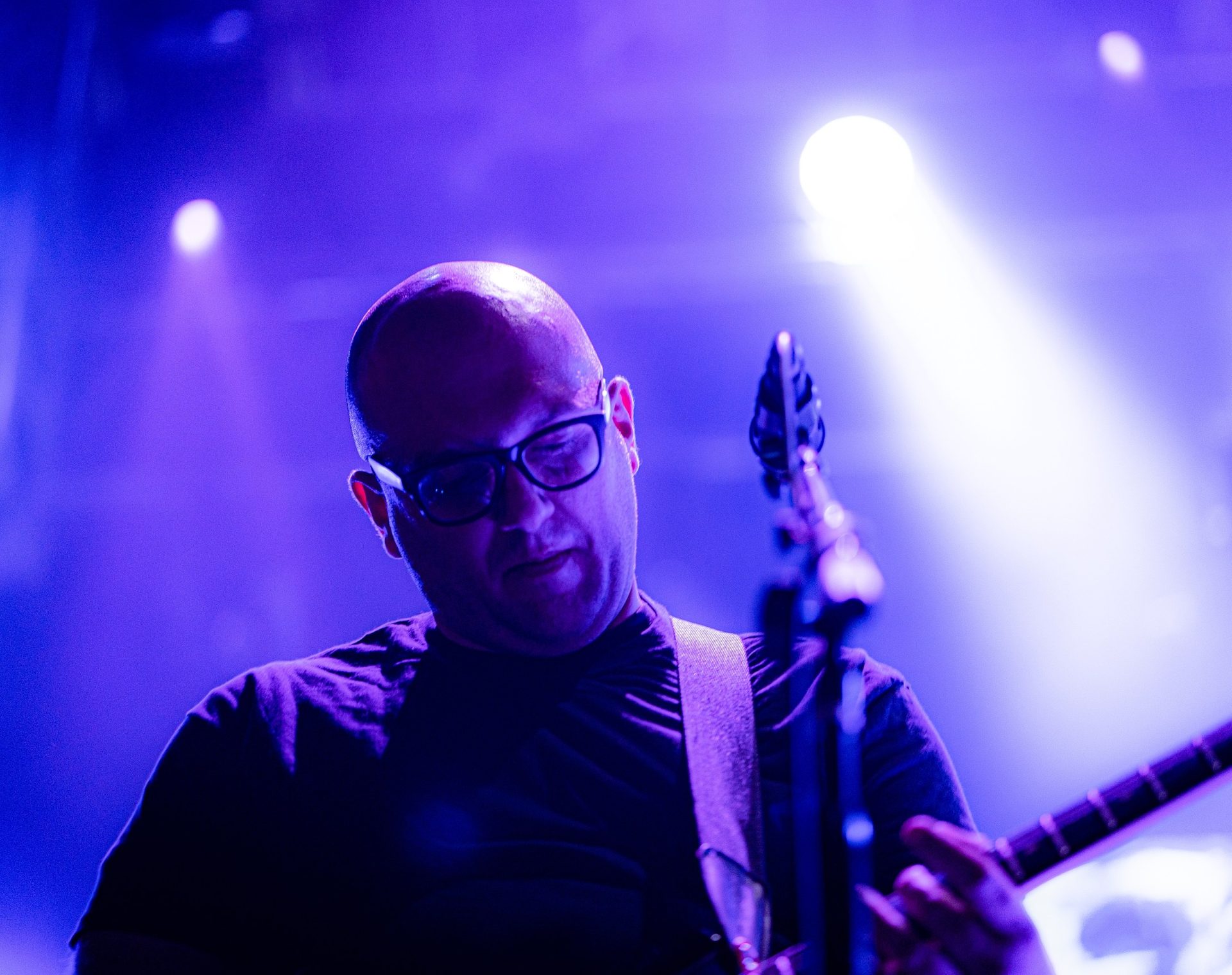
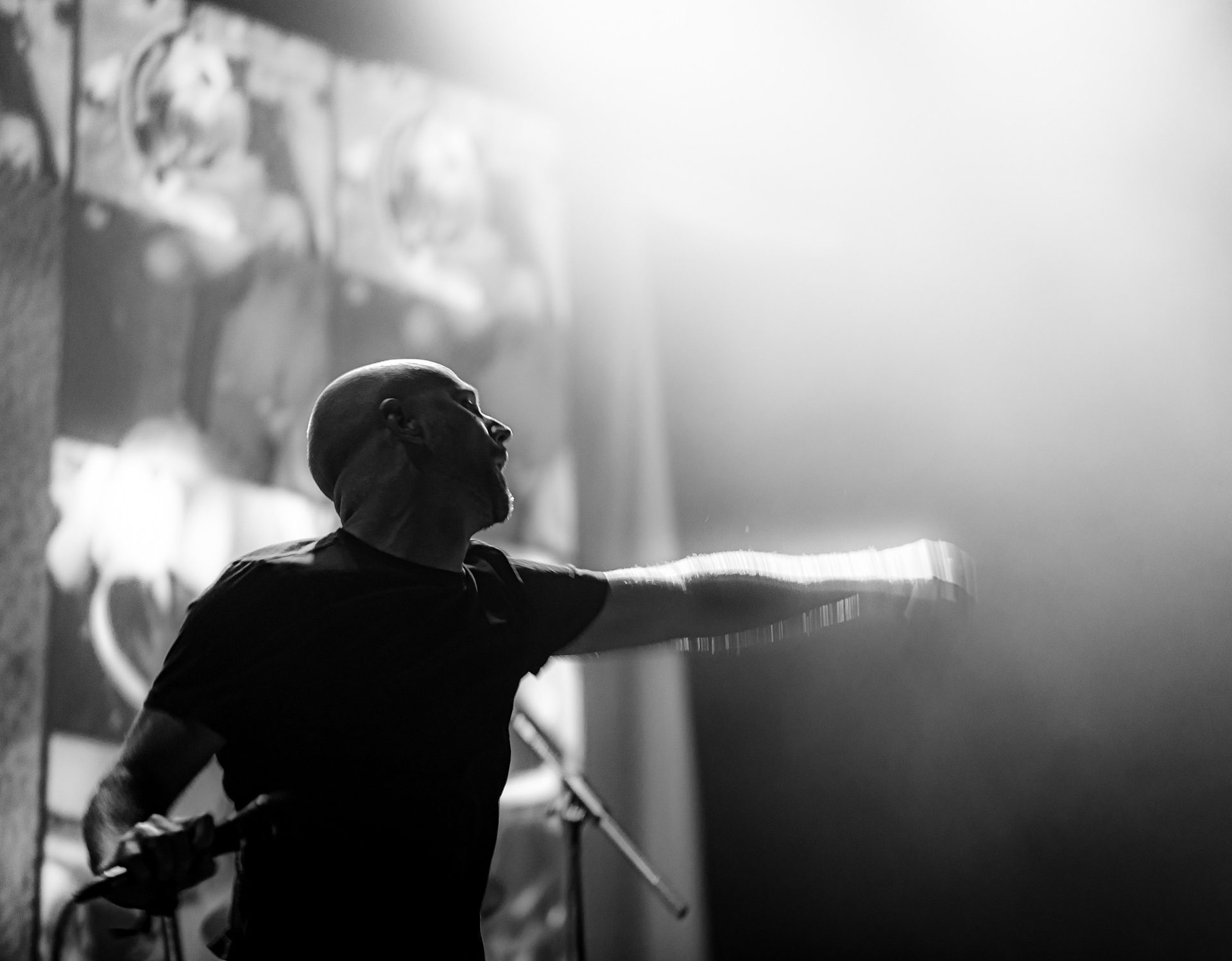
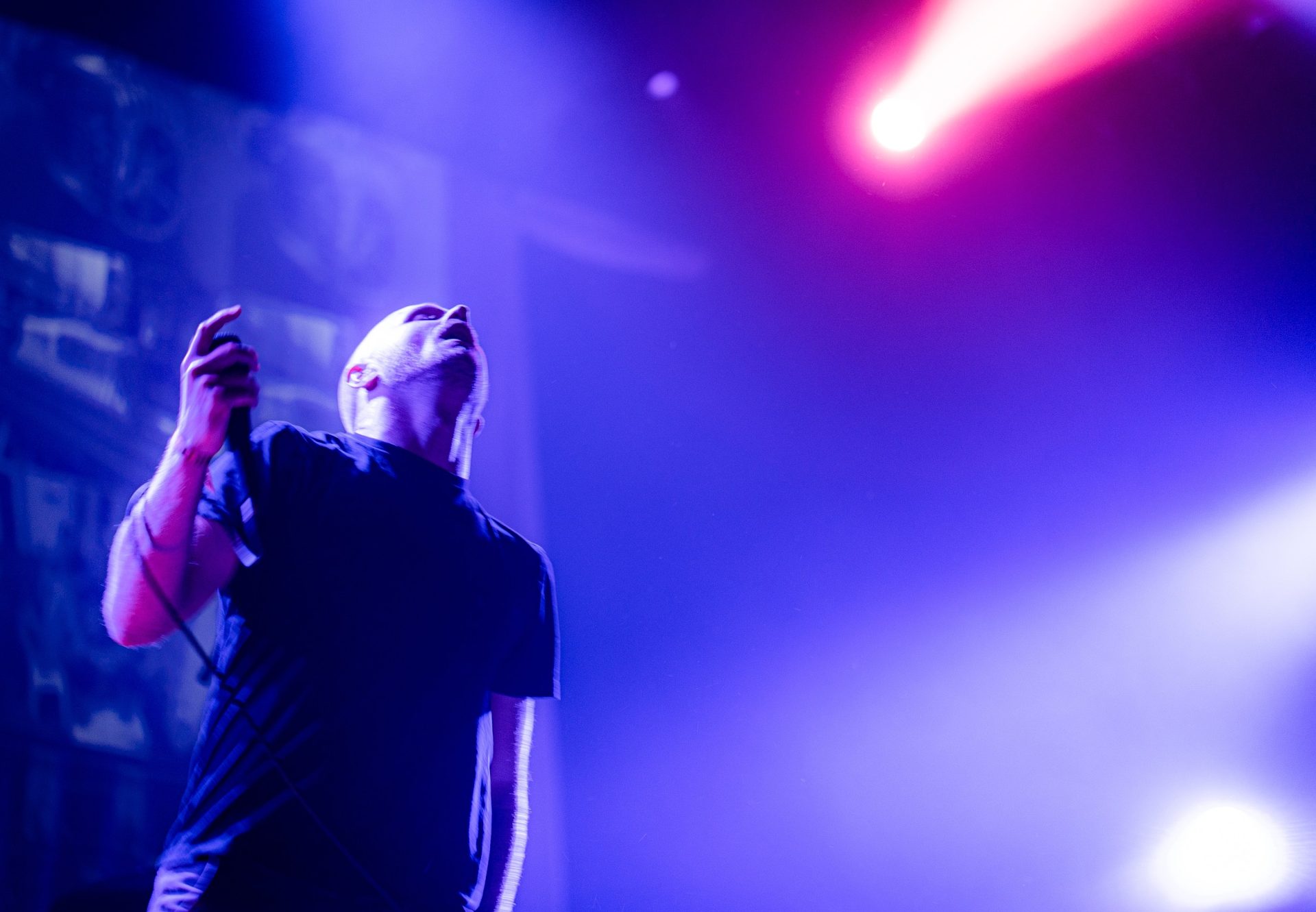
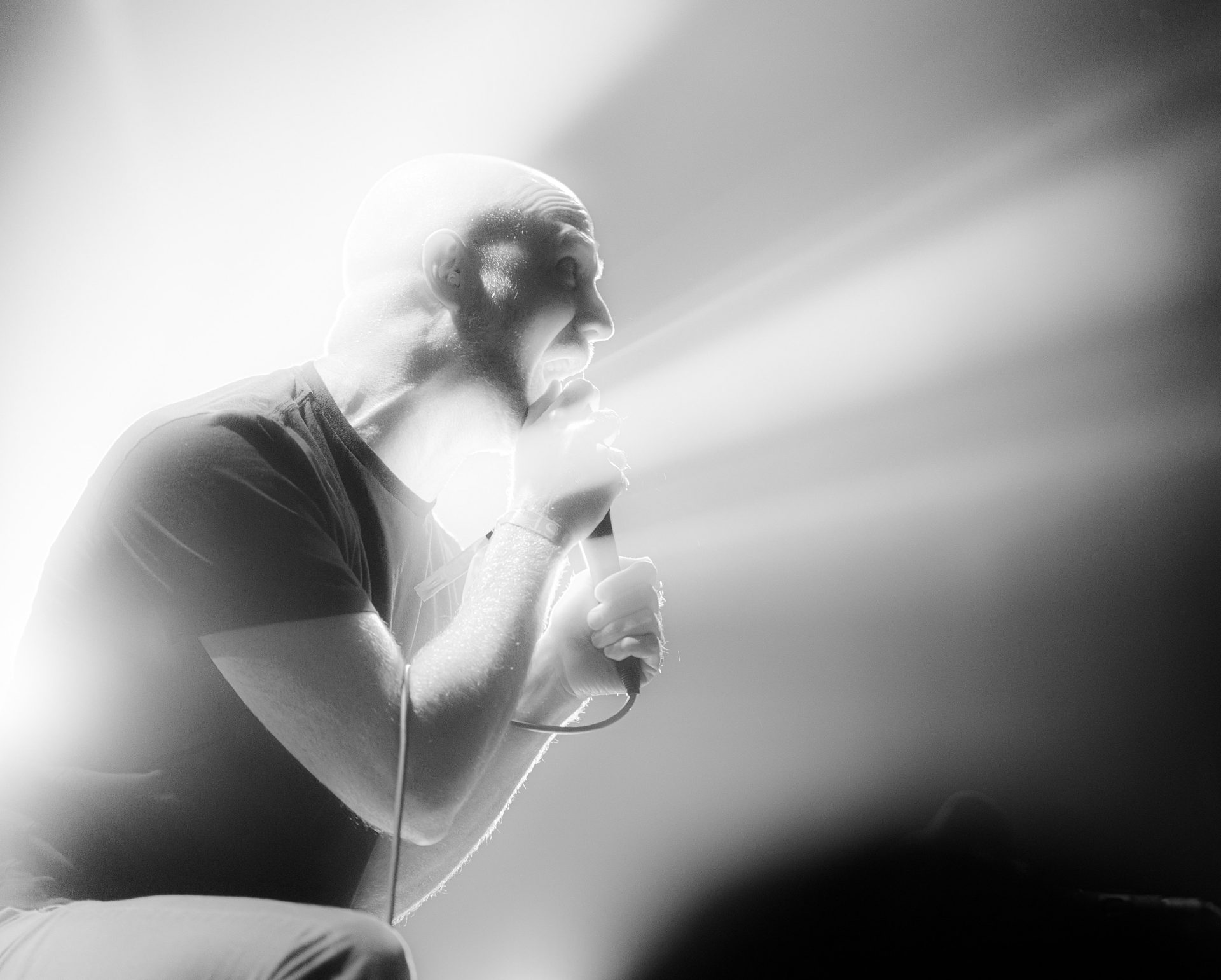
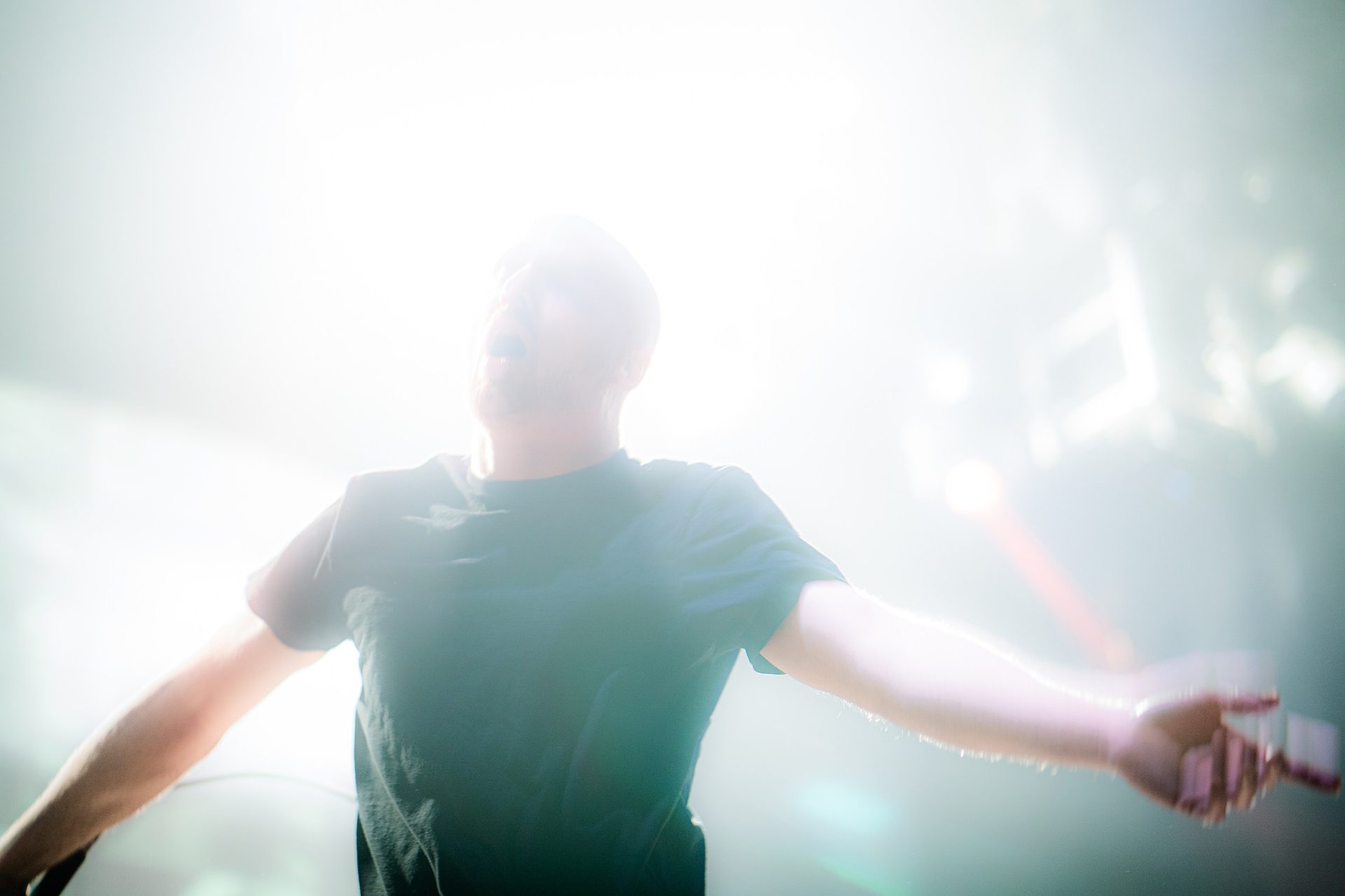
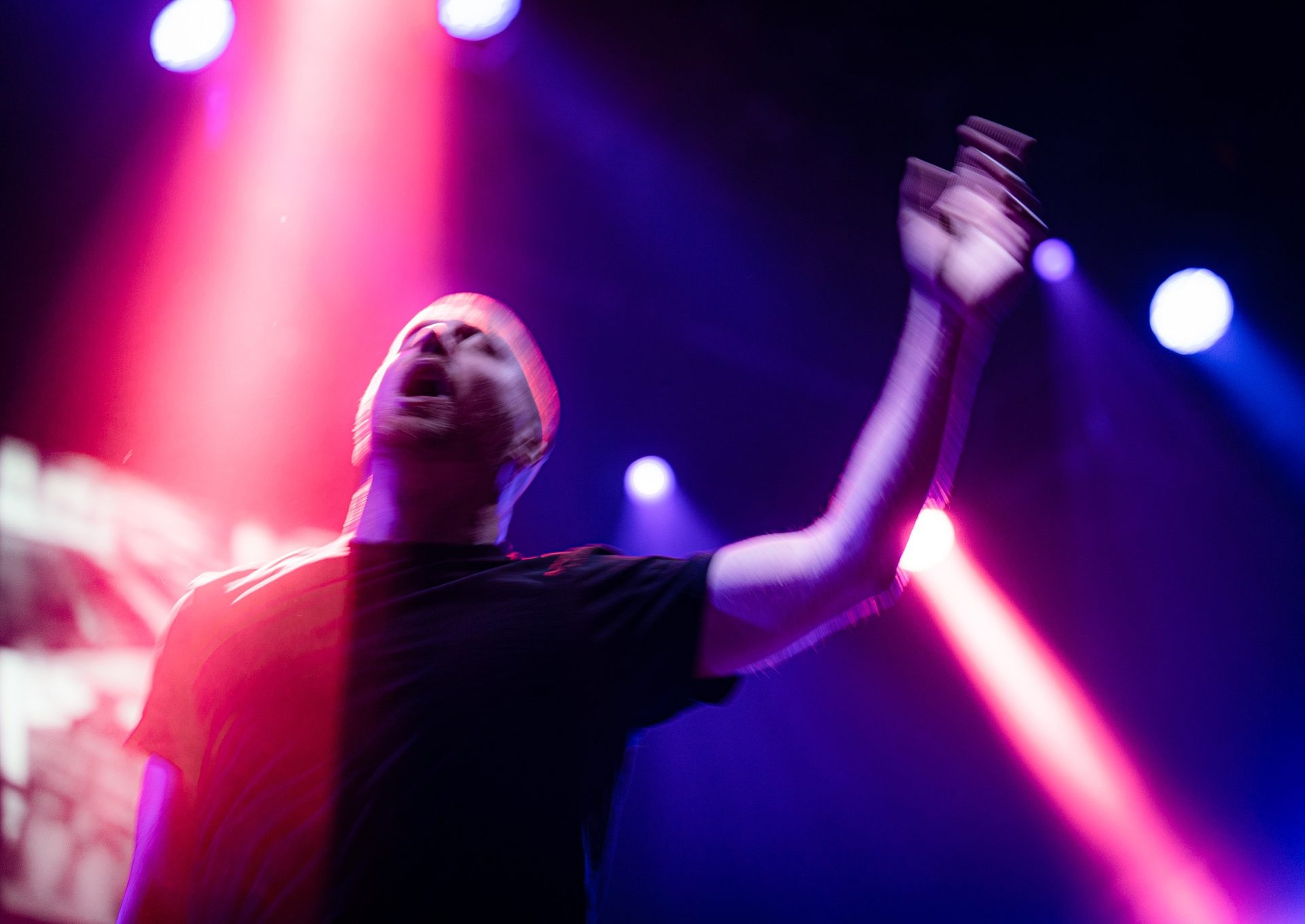
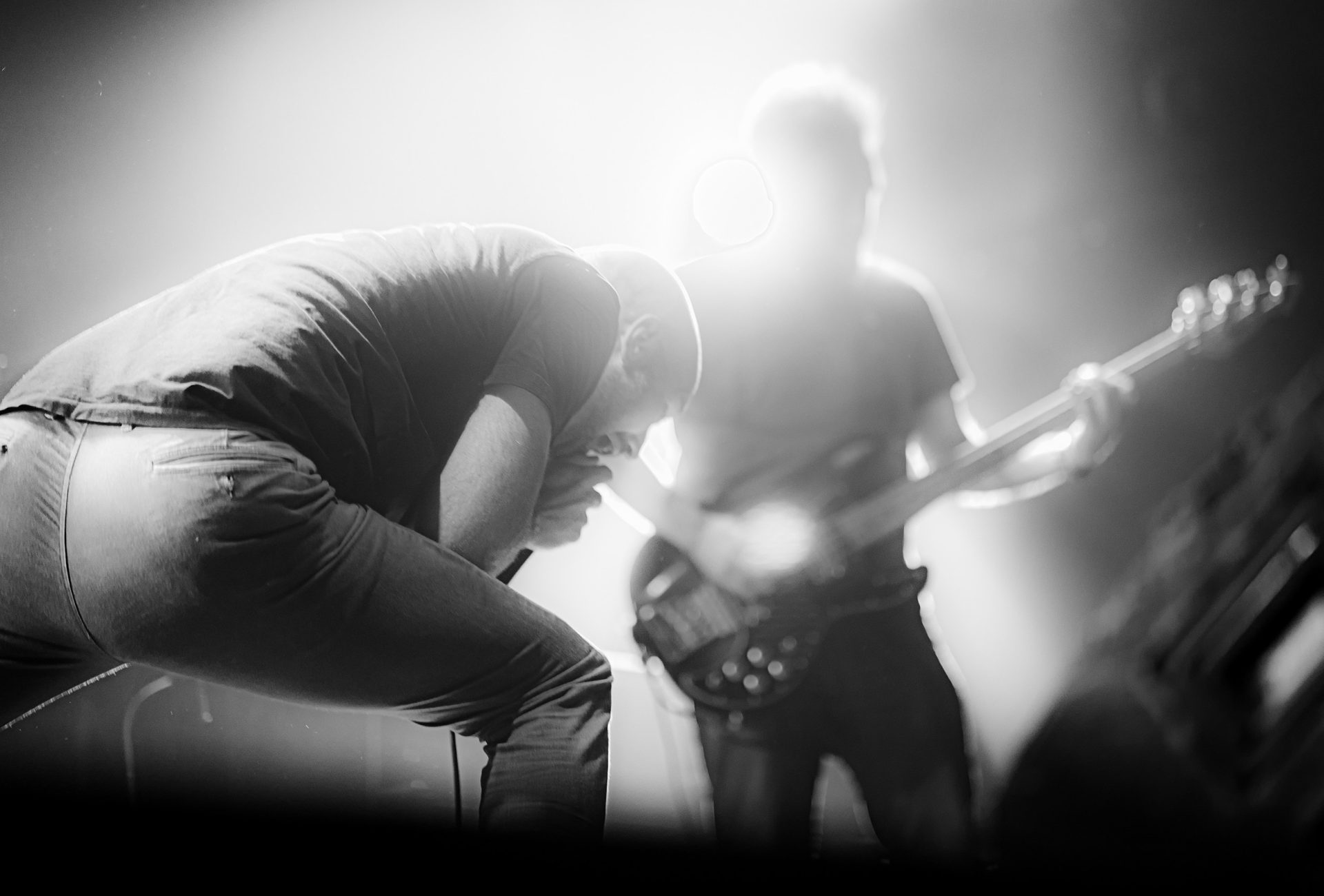
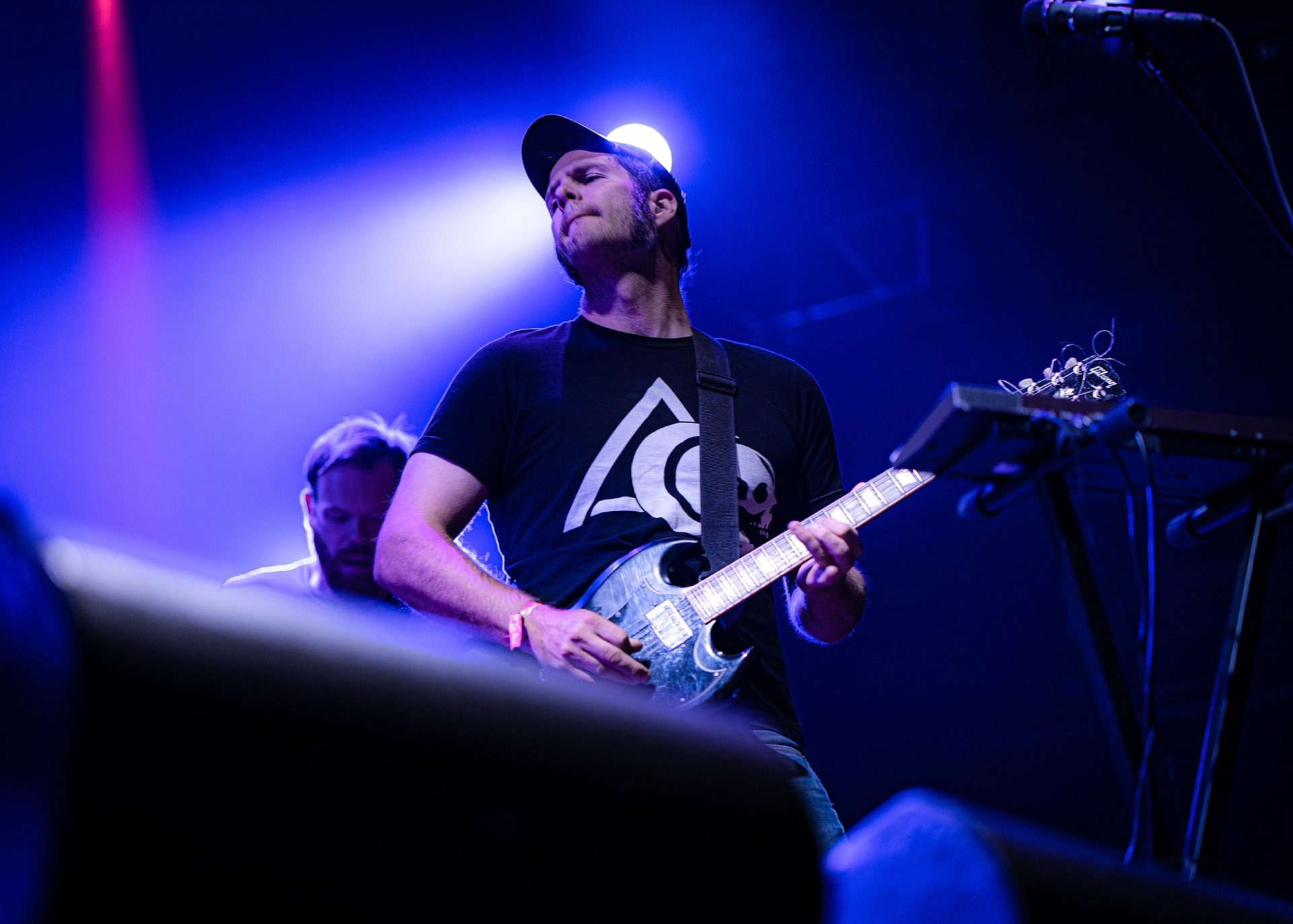
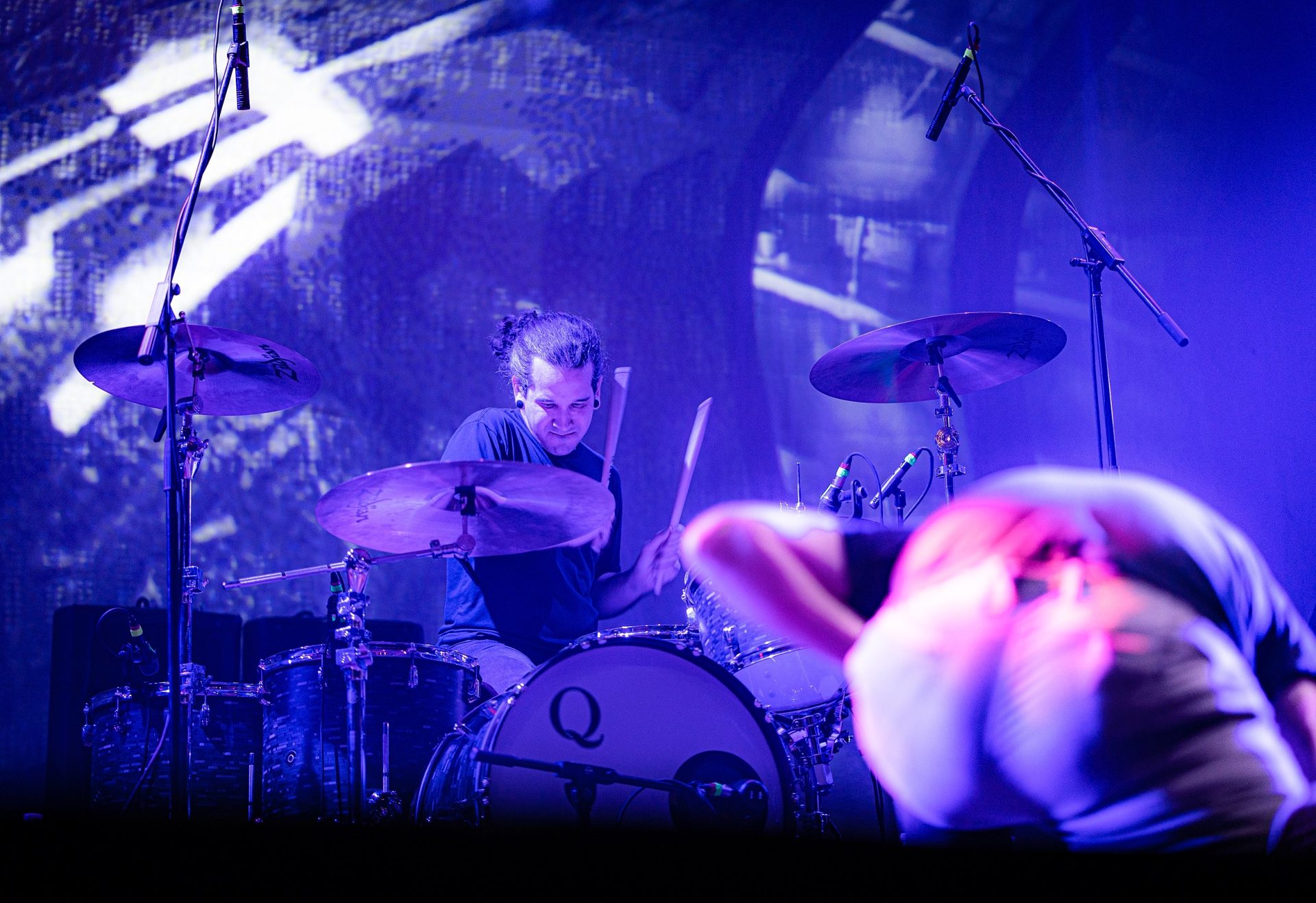
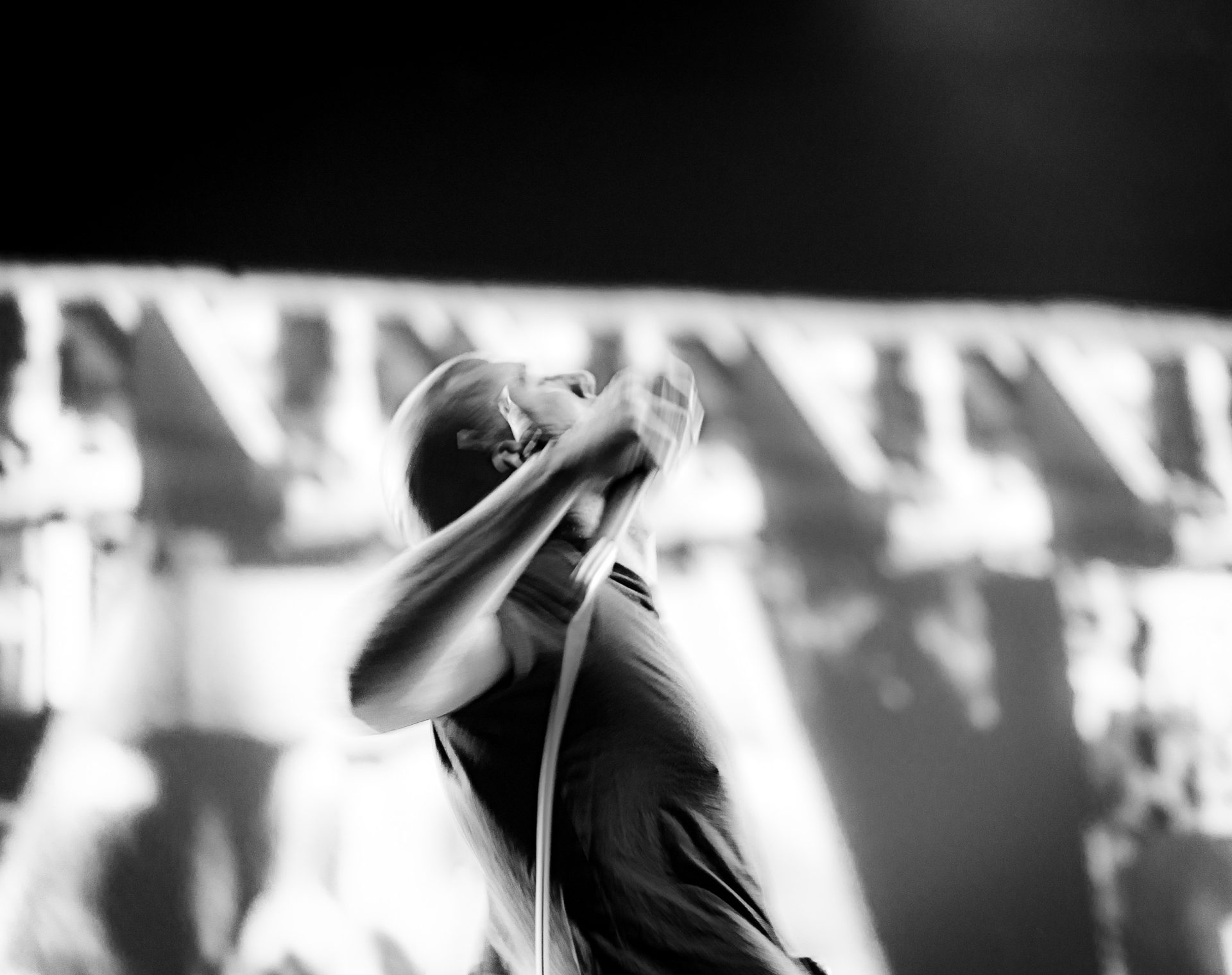
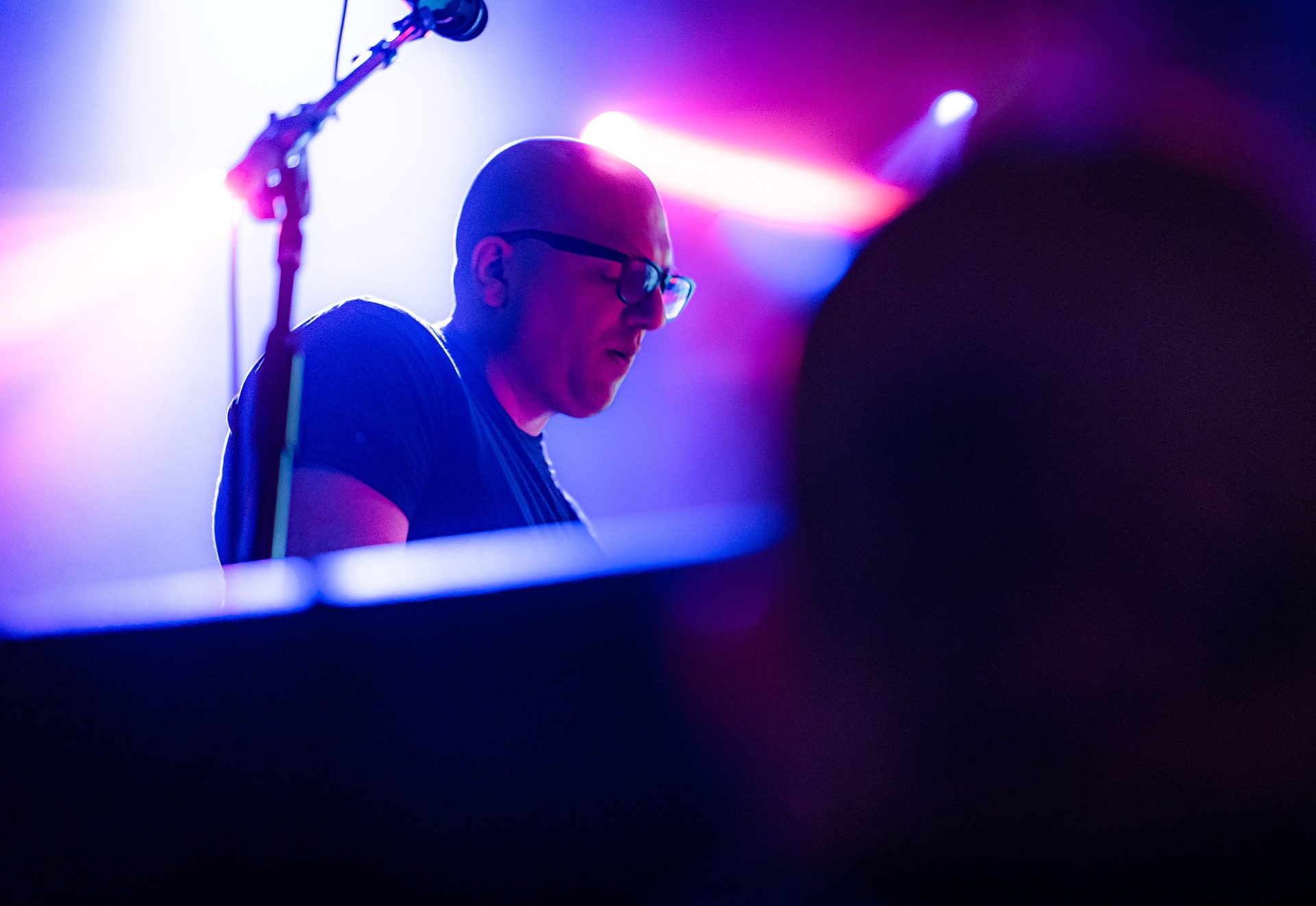
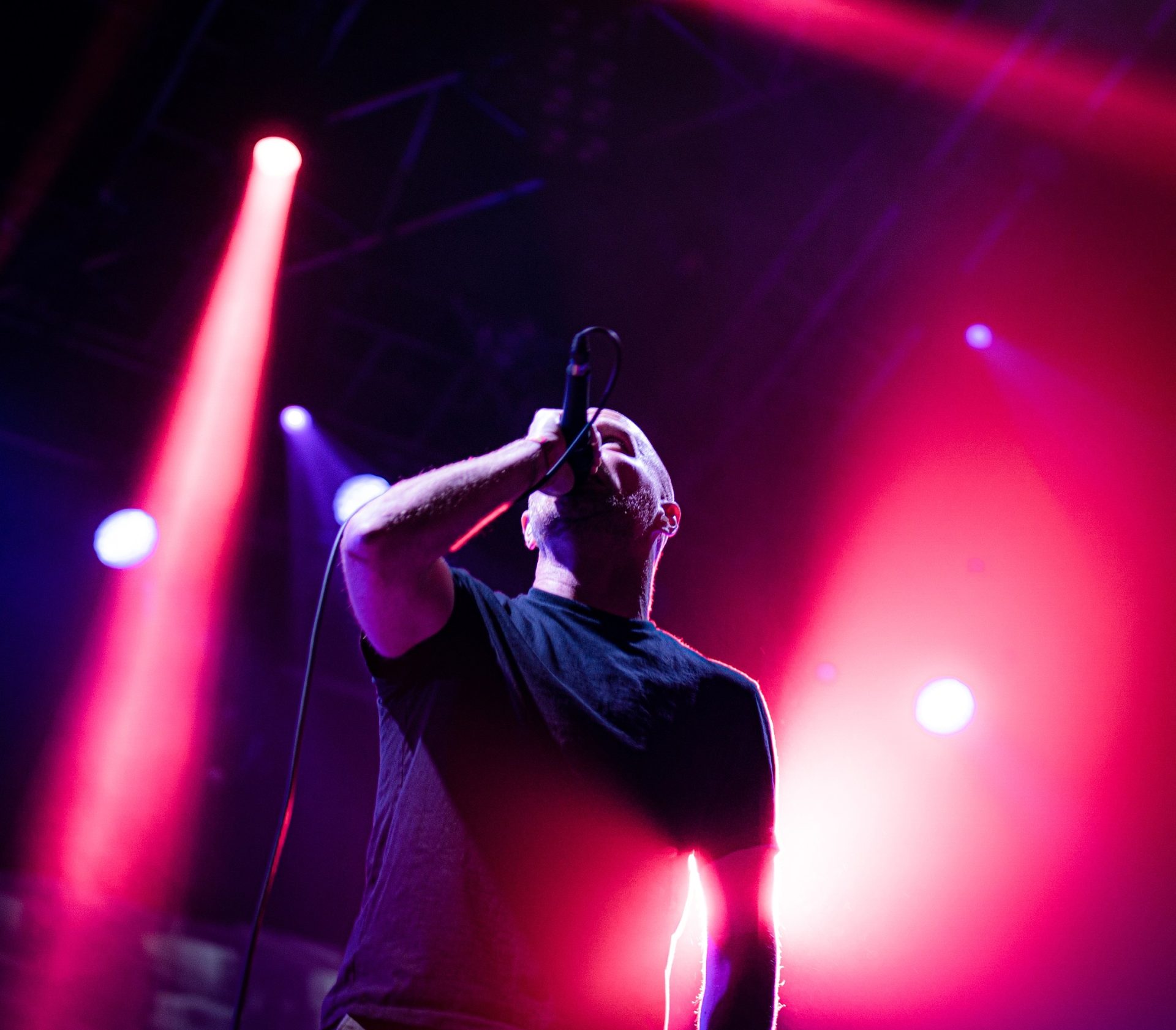
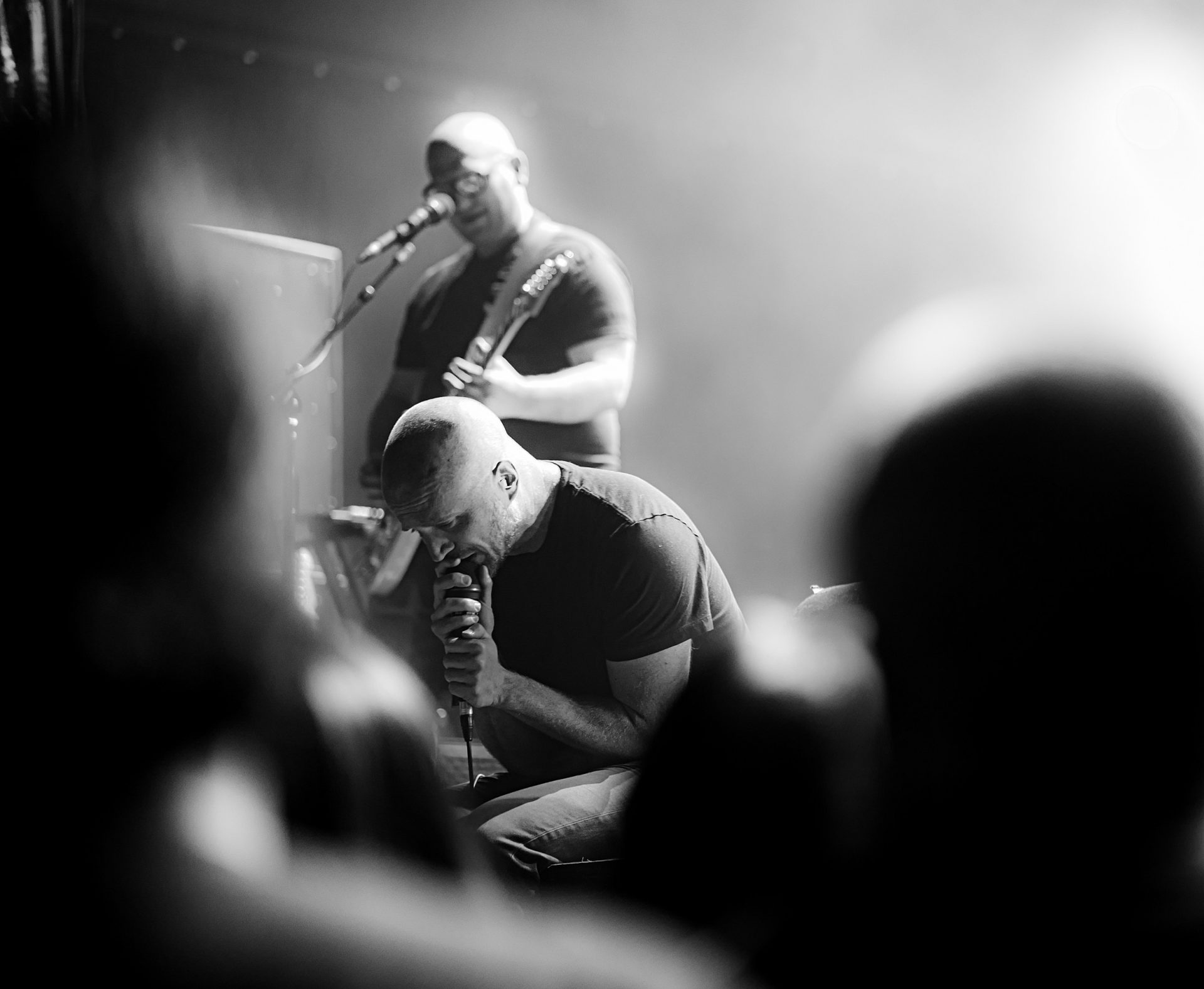
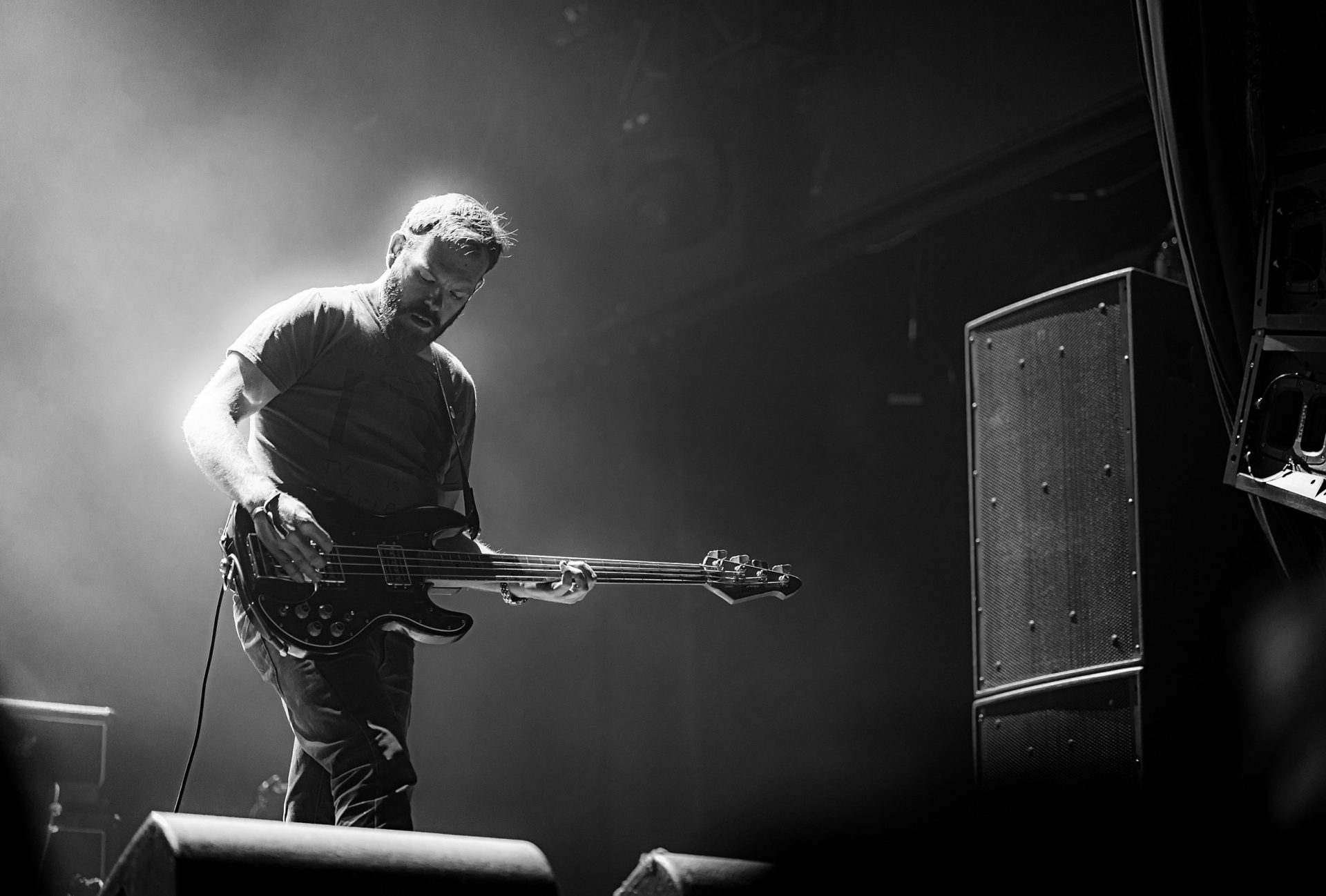
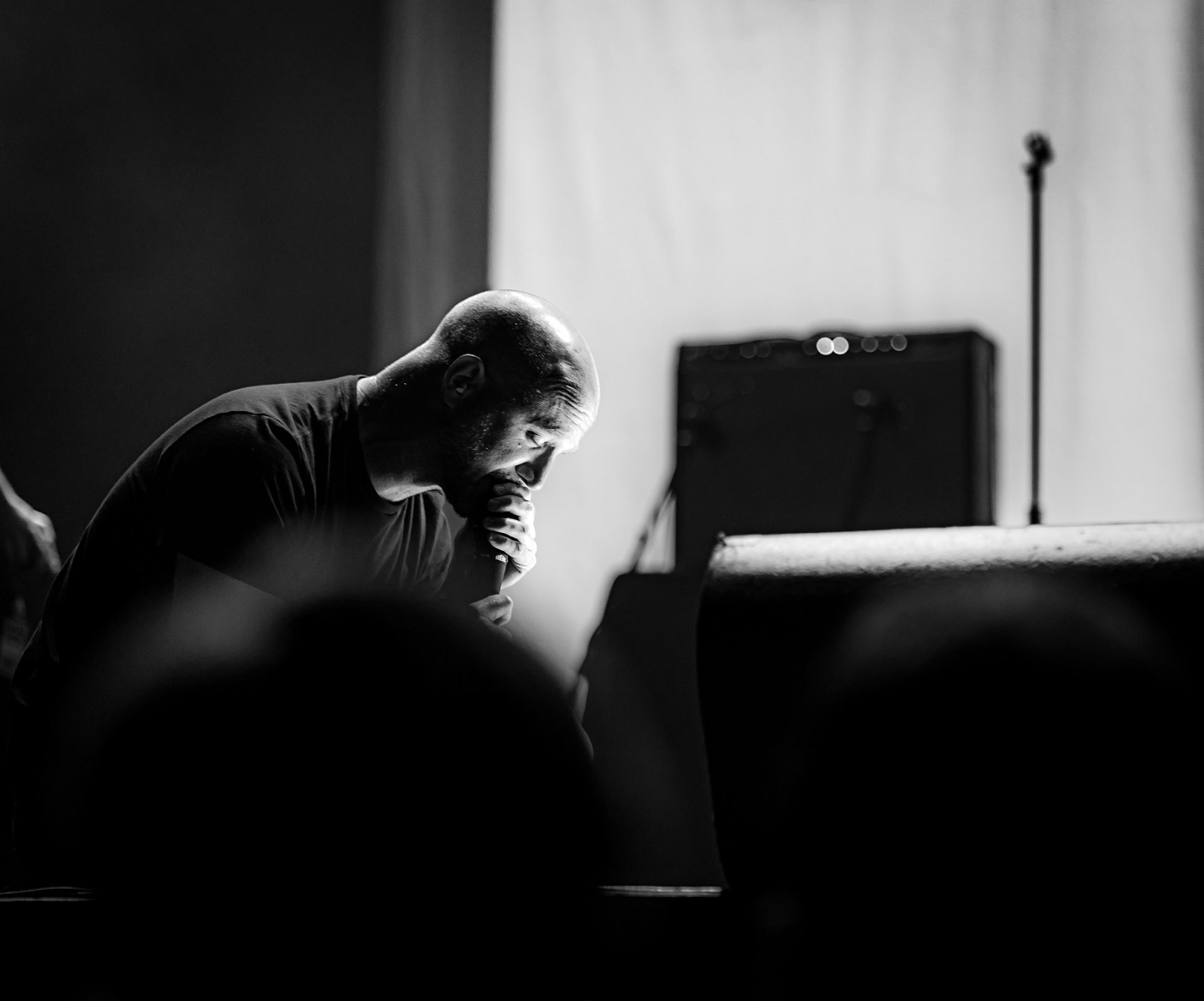
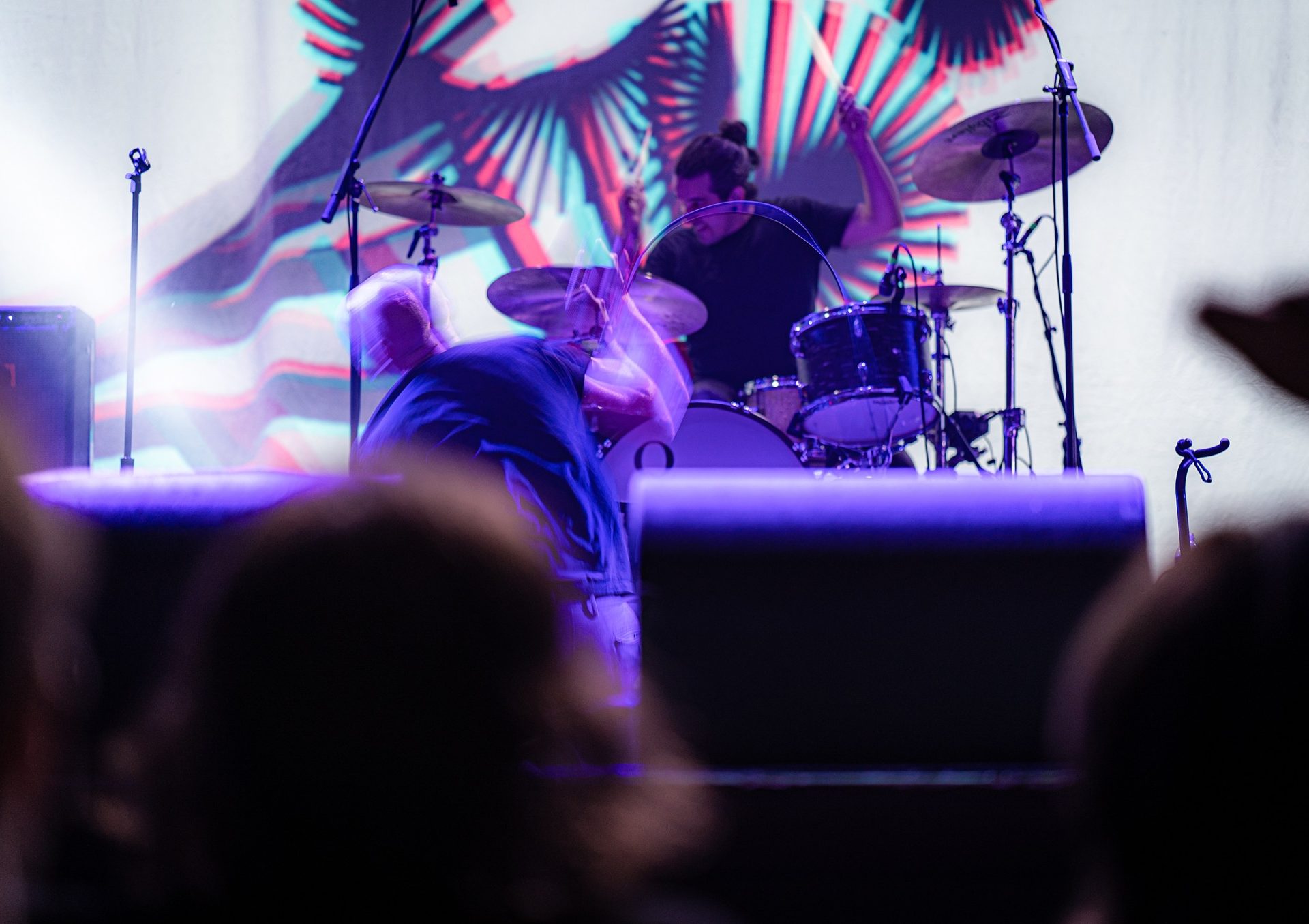
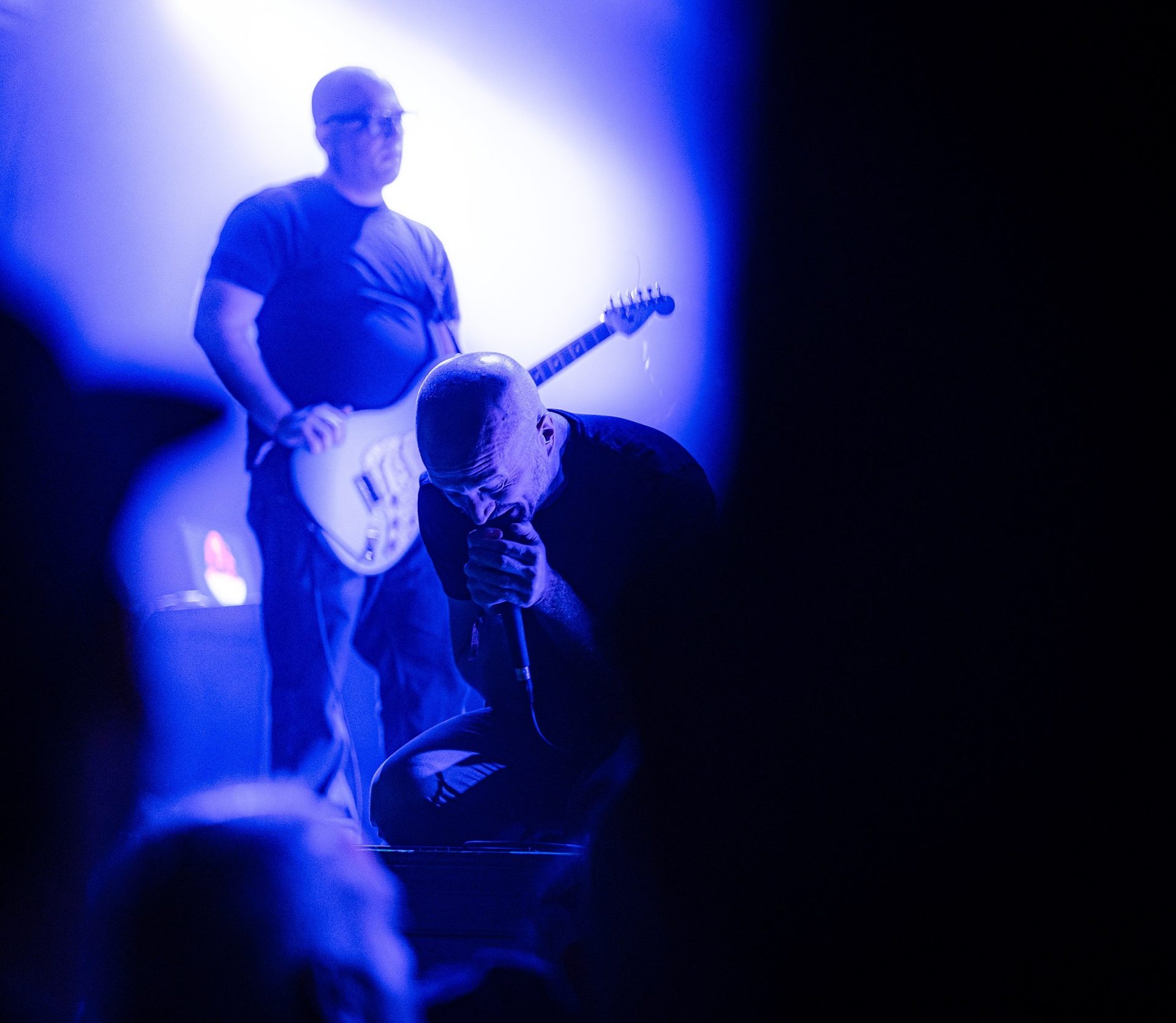
…
Support Invisible Oranges on Patreon and check out our merch.
…










